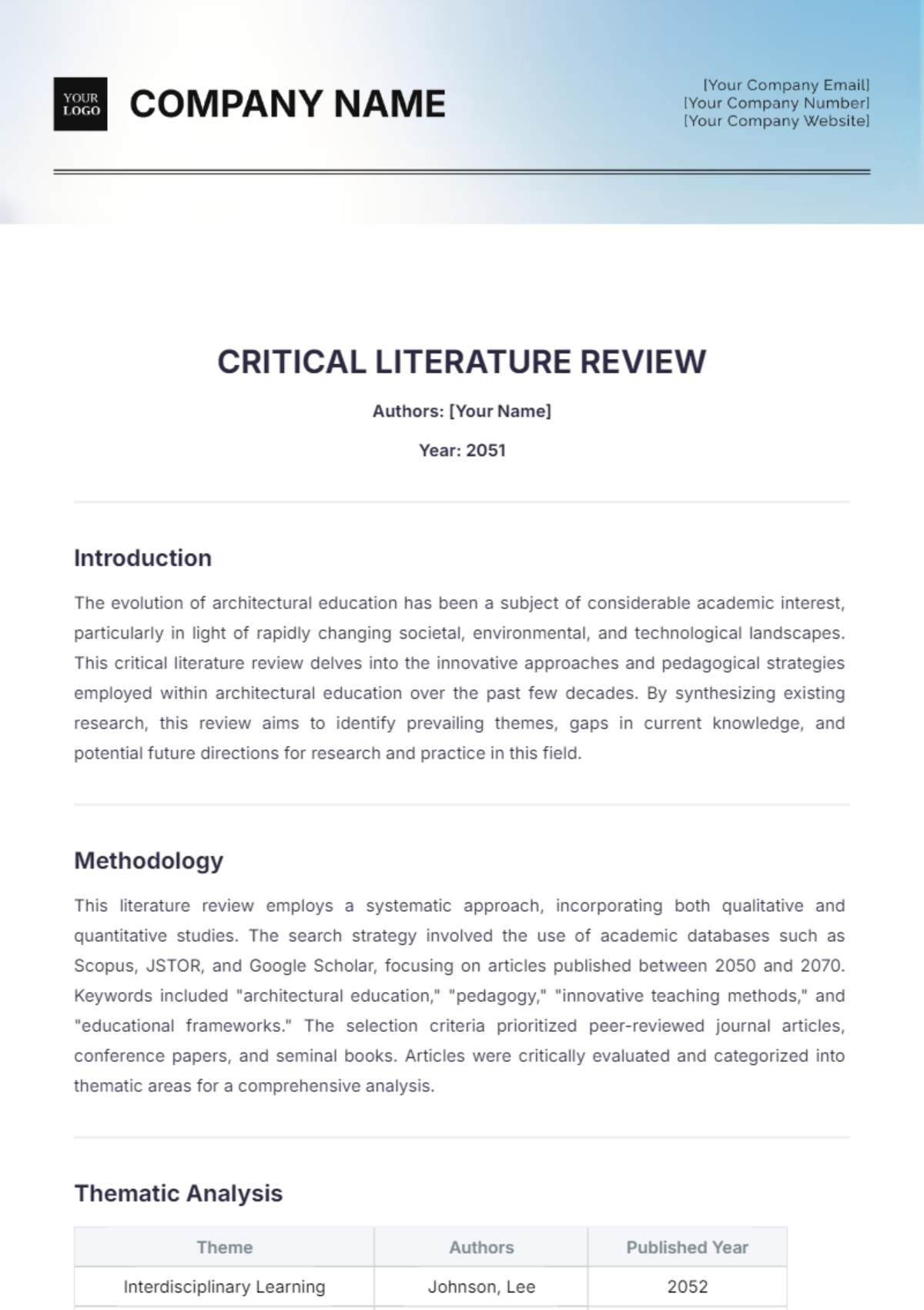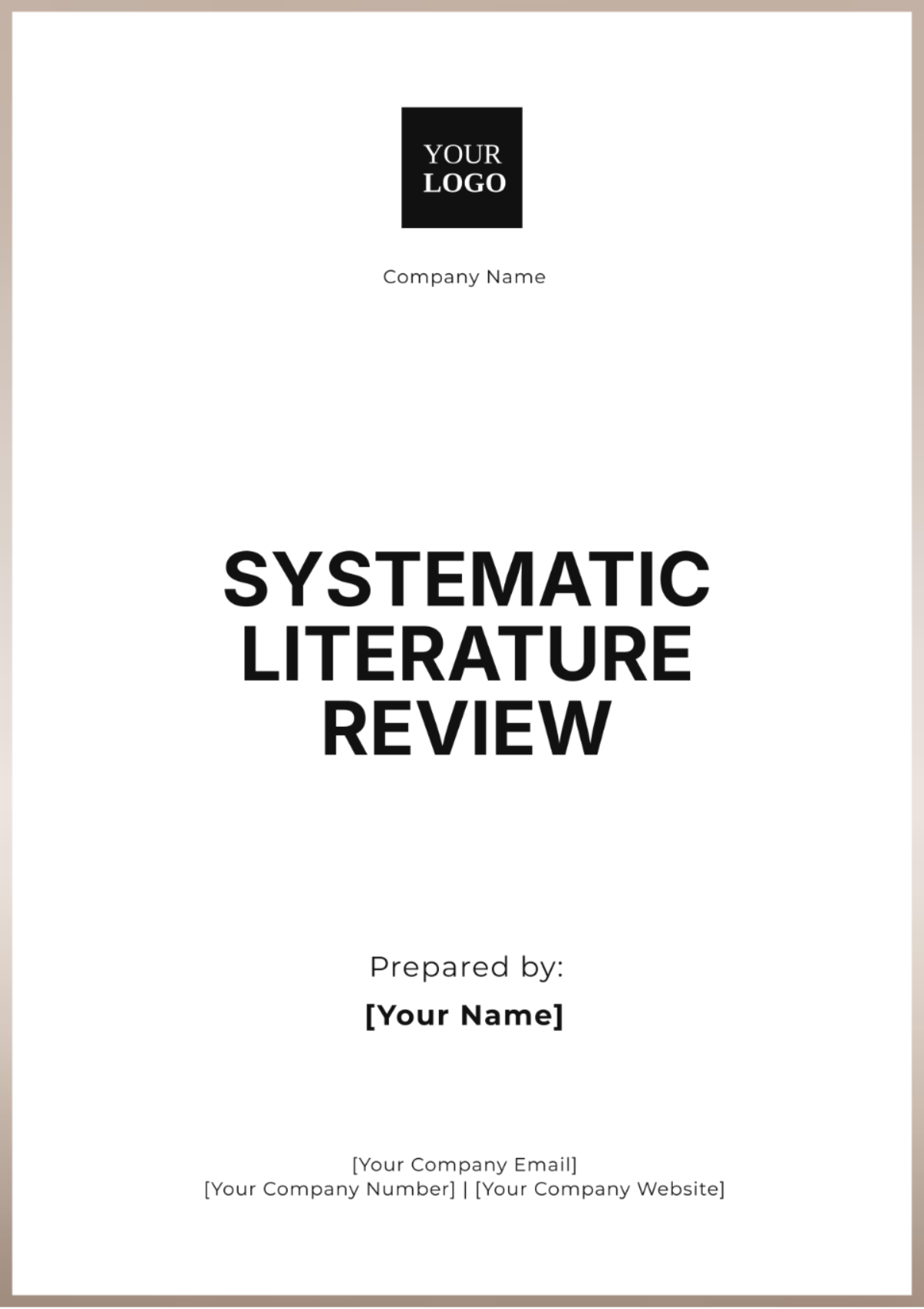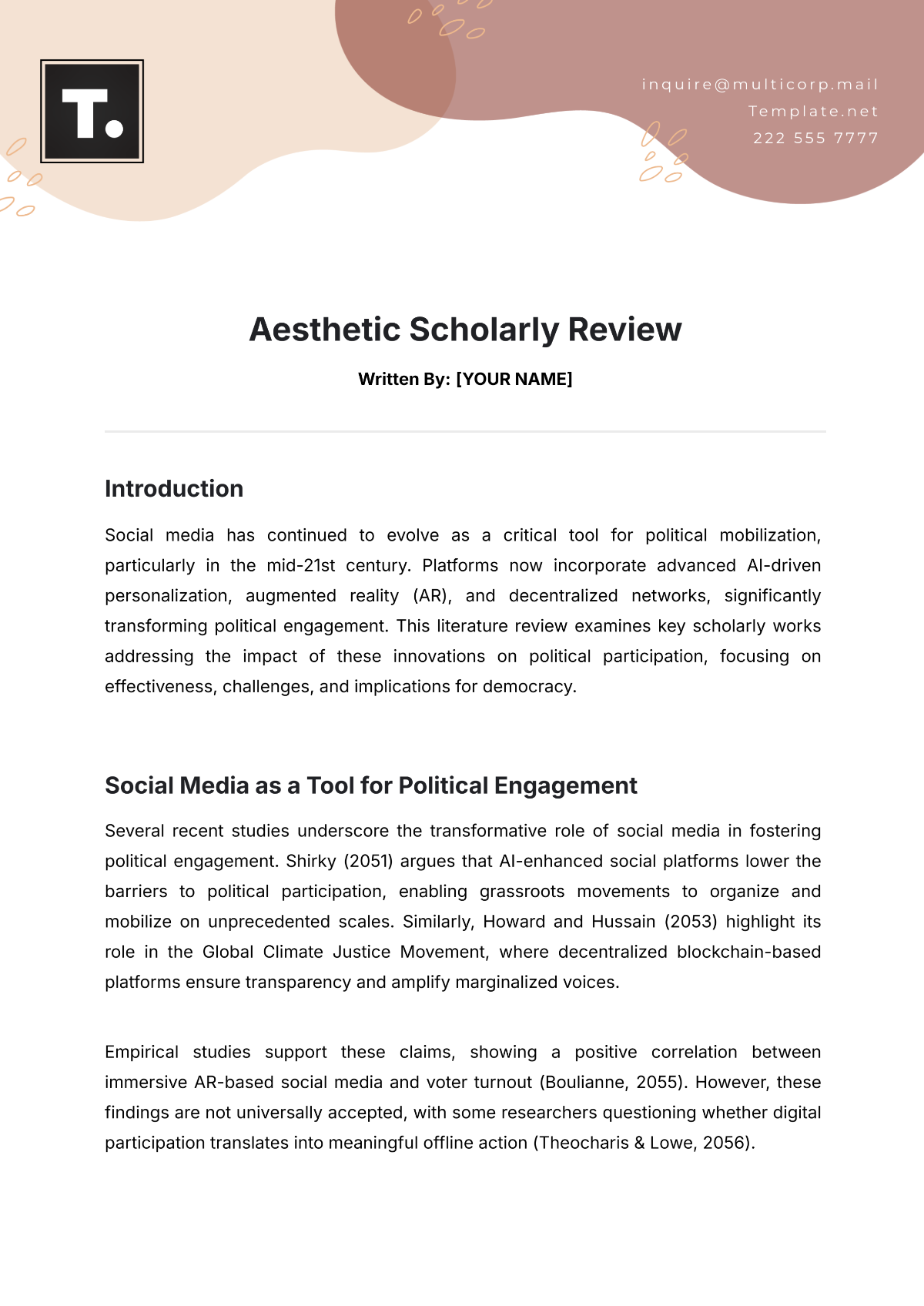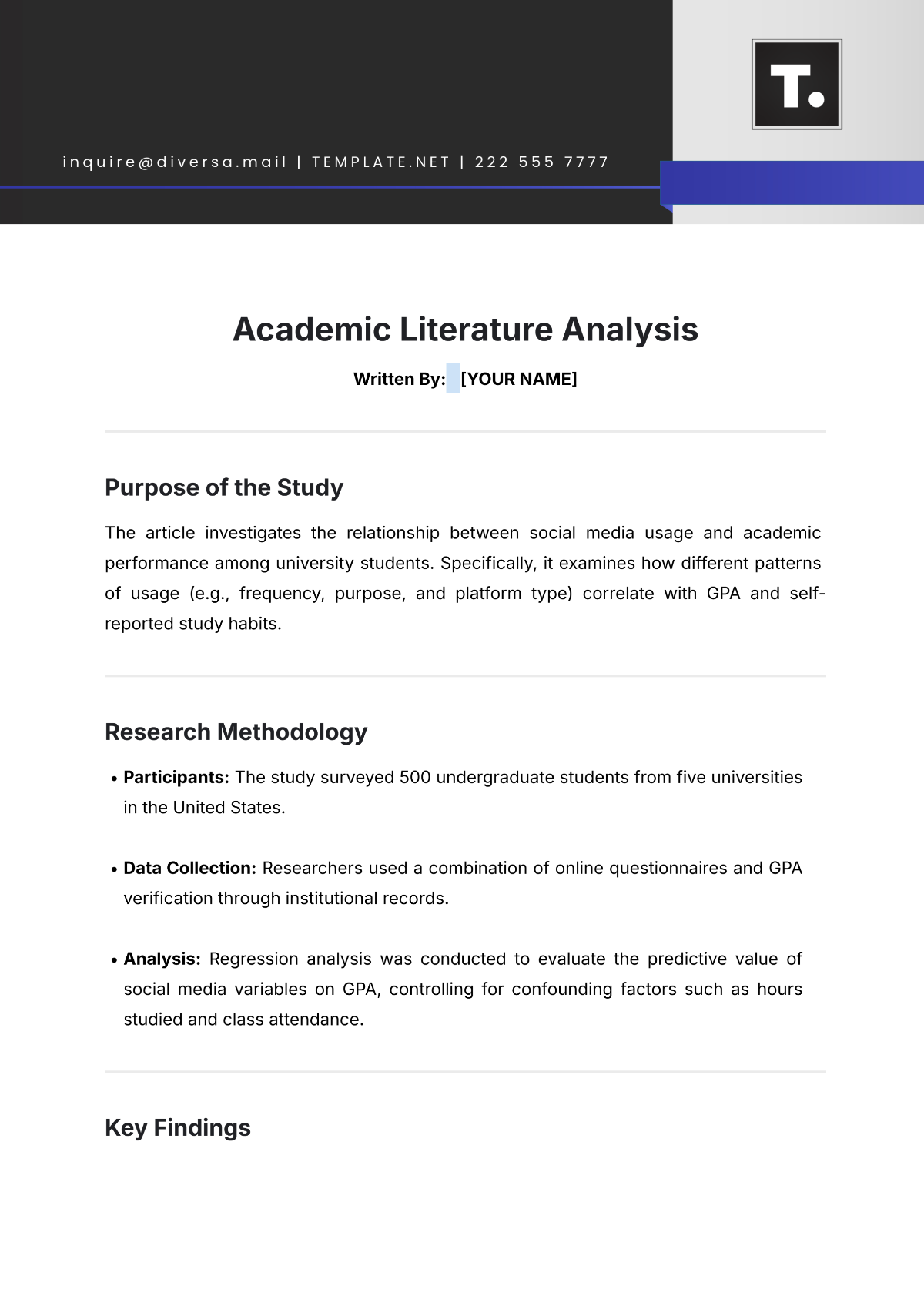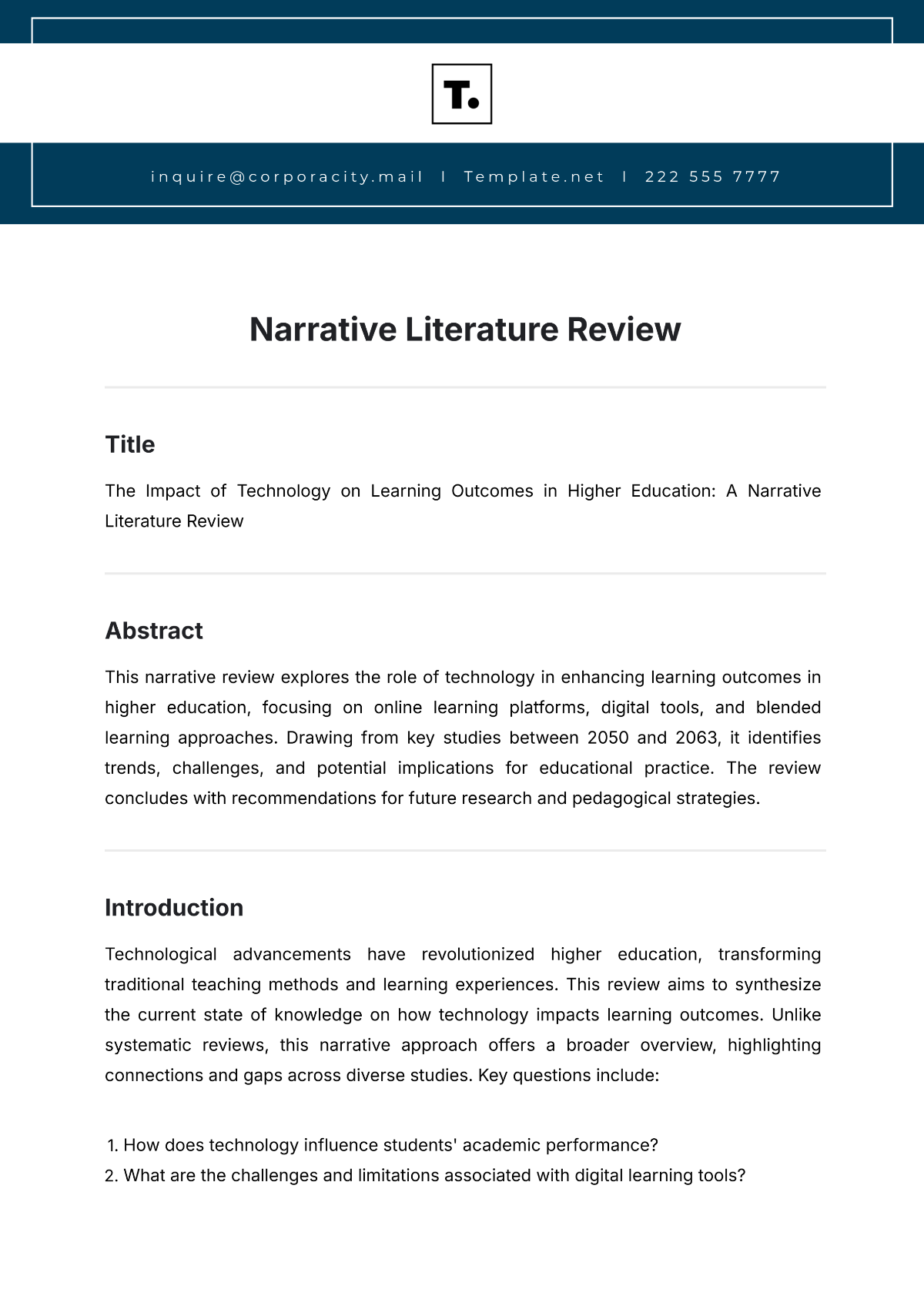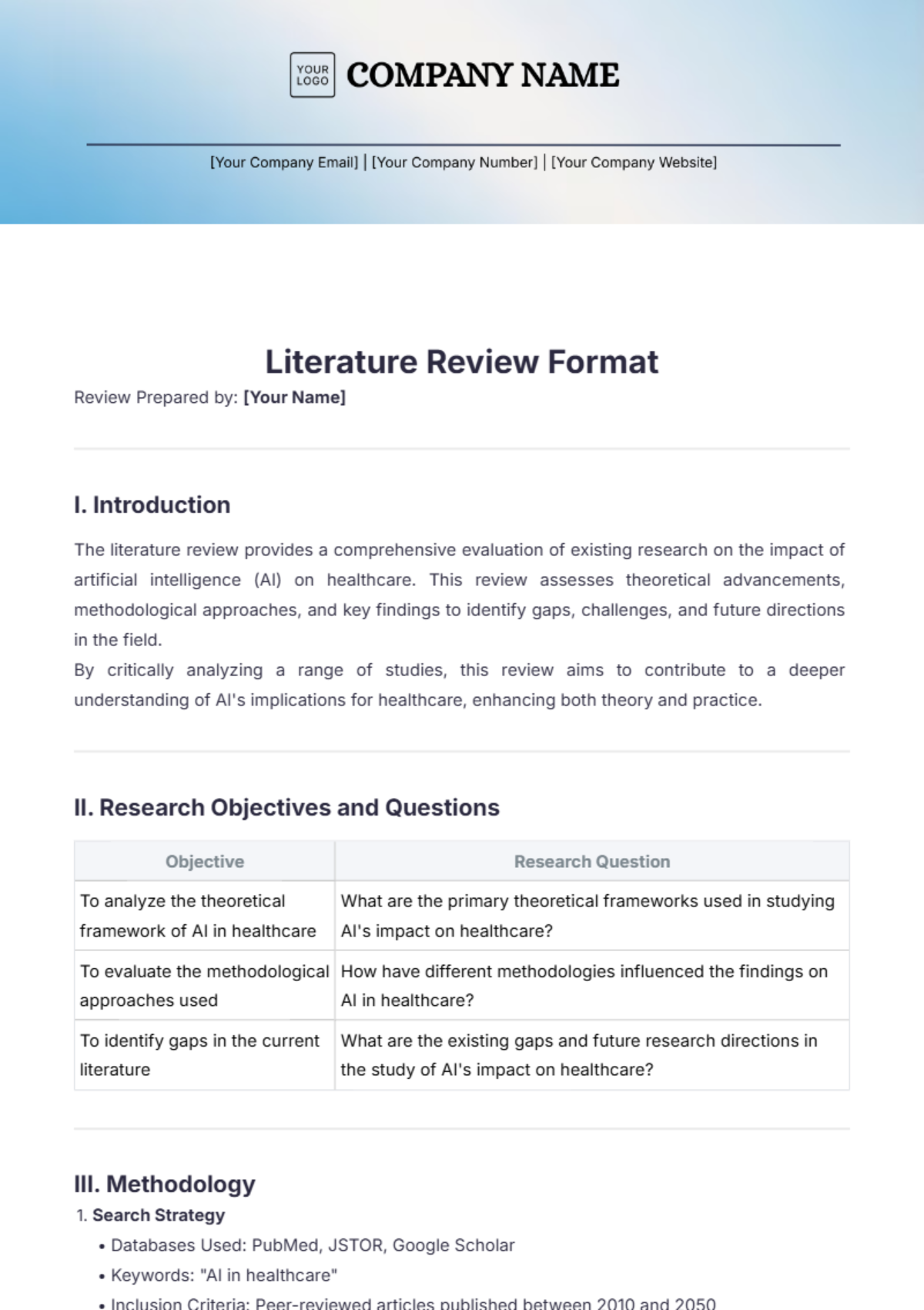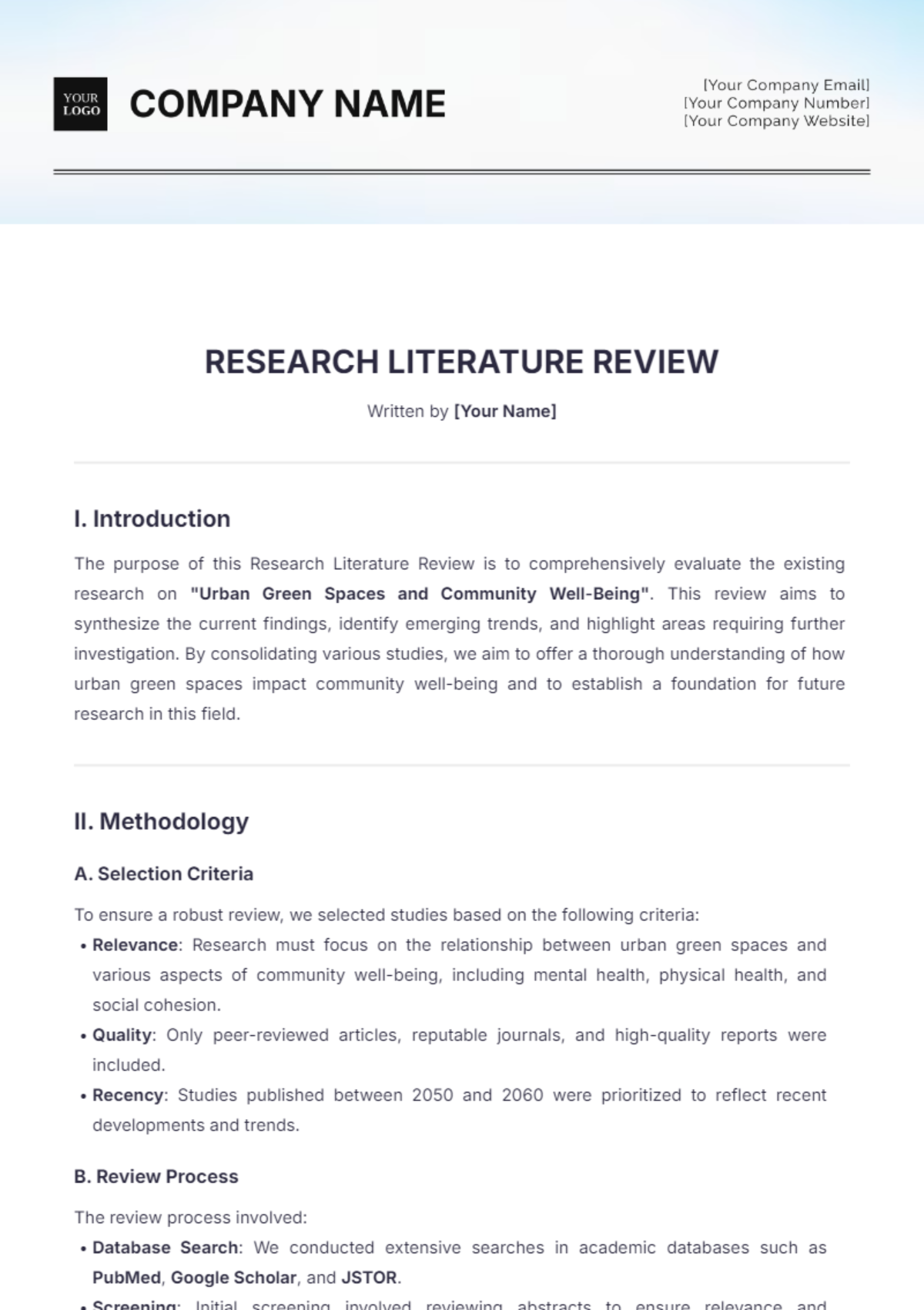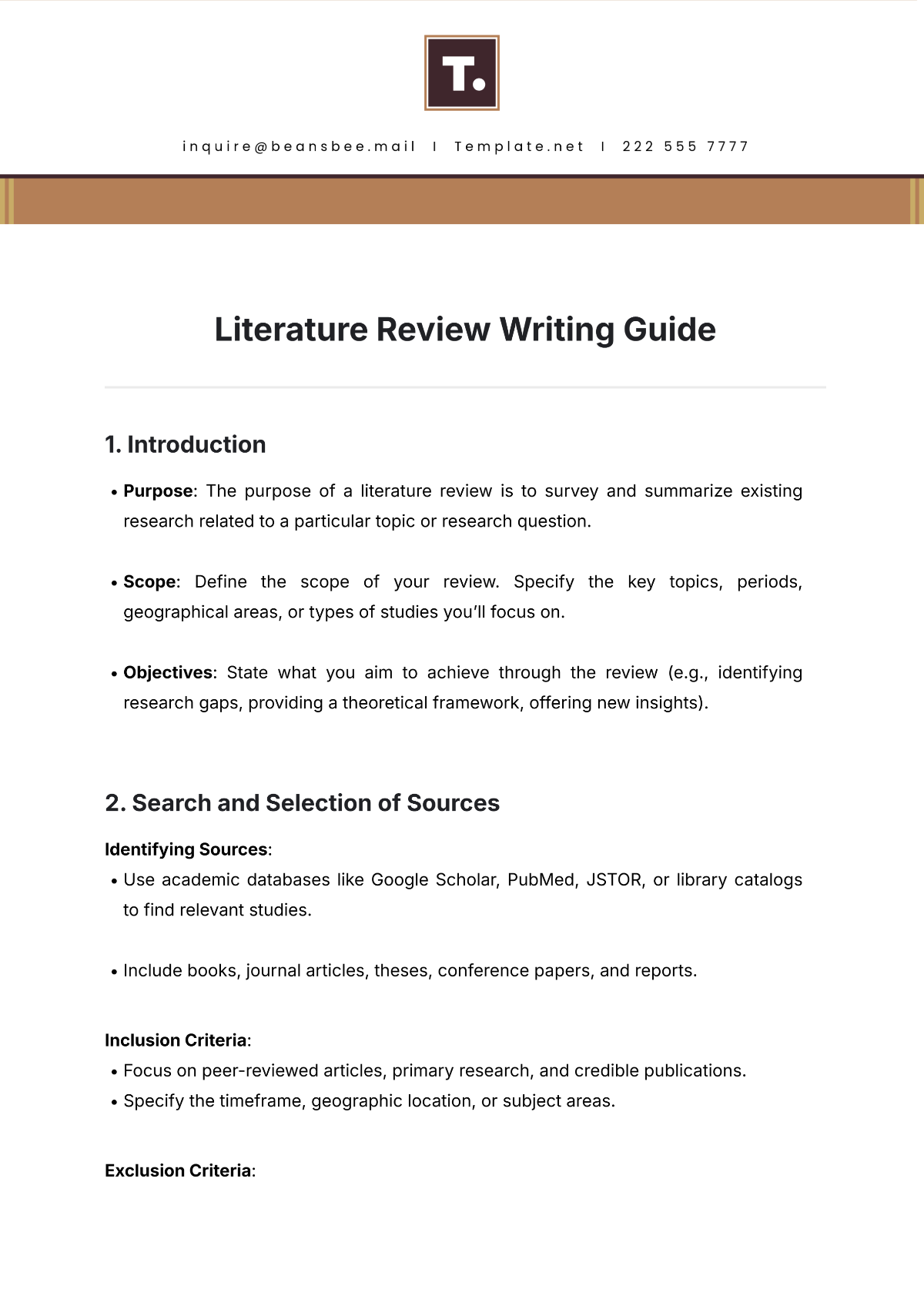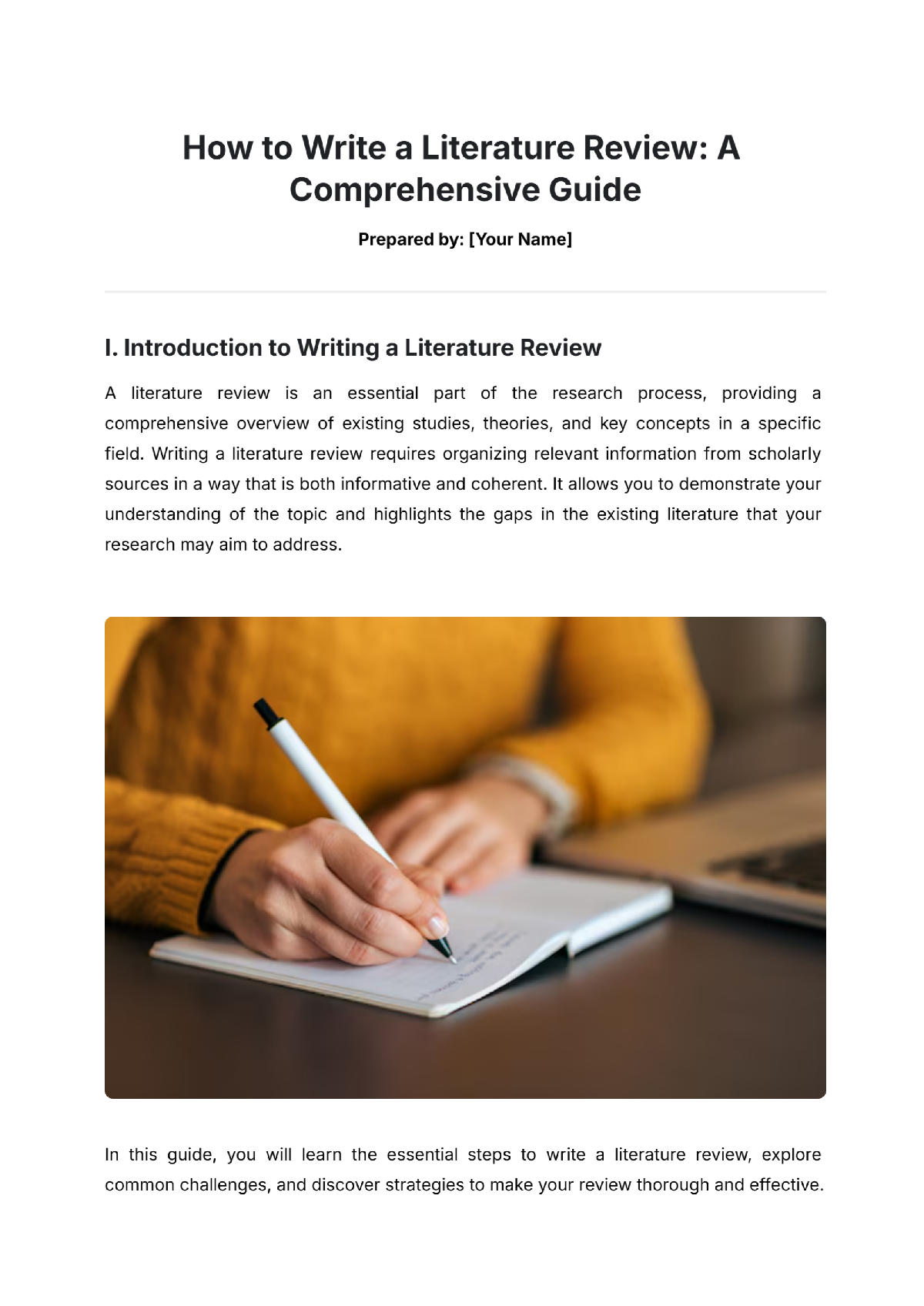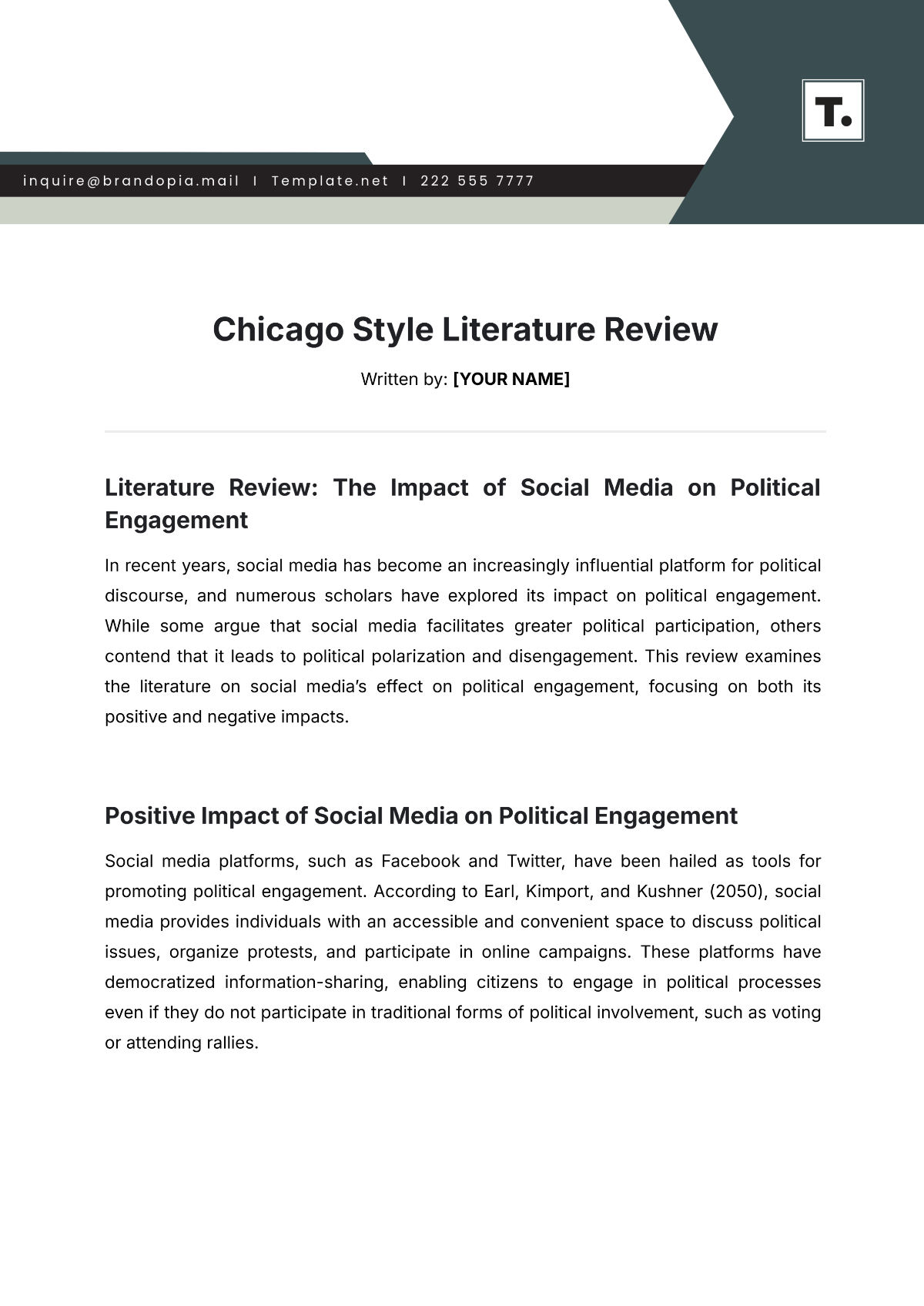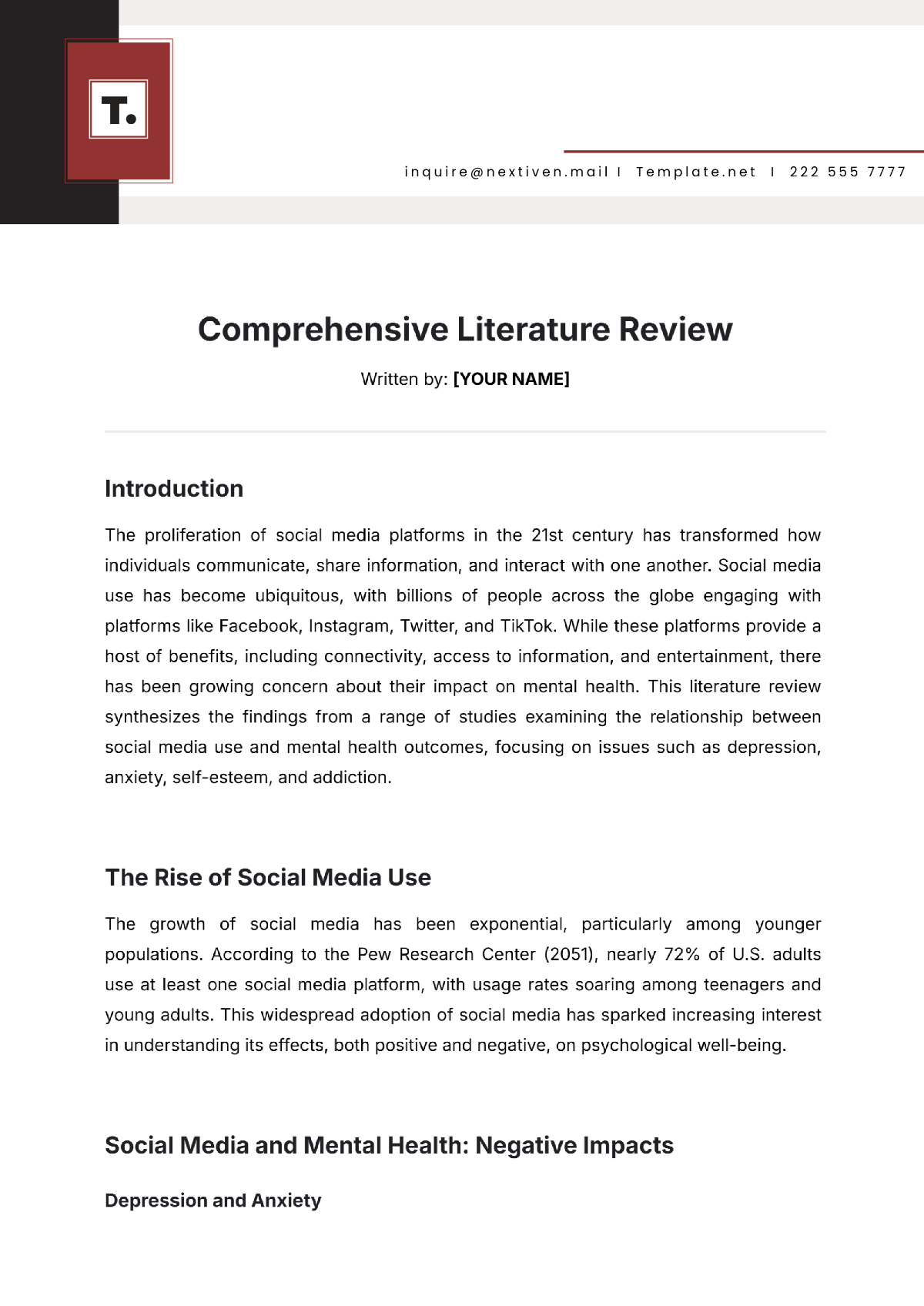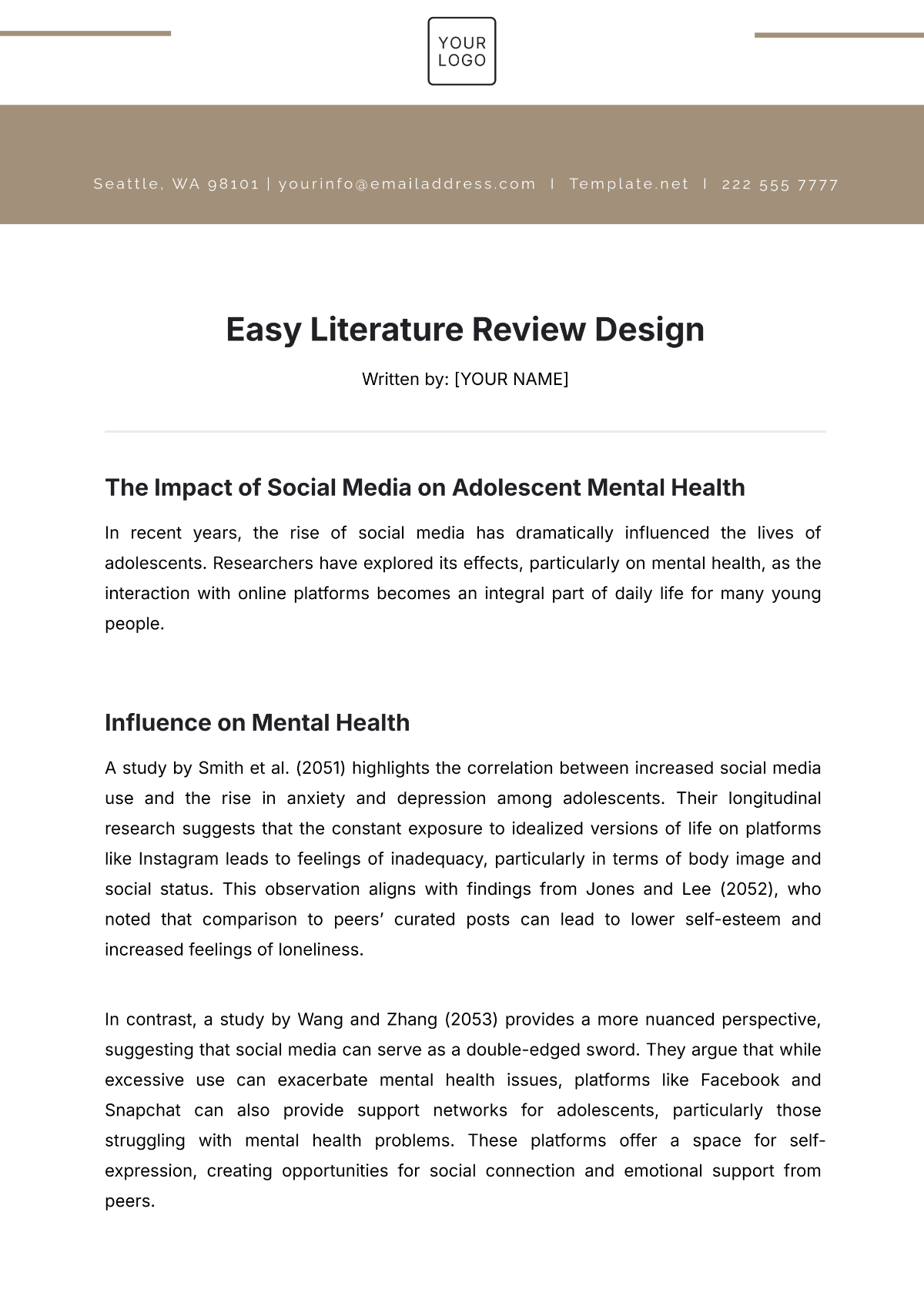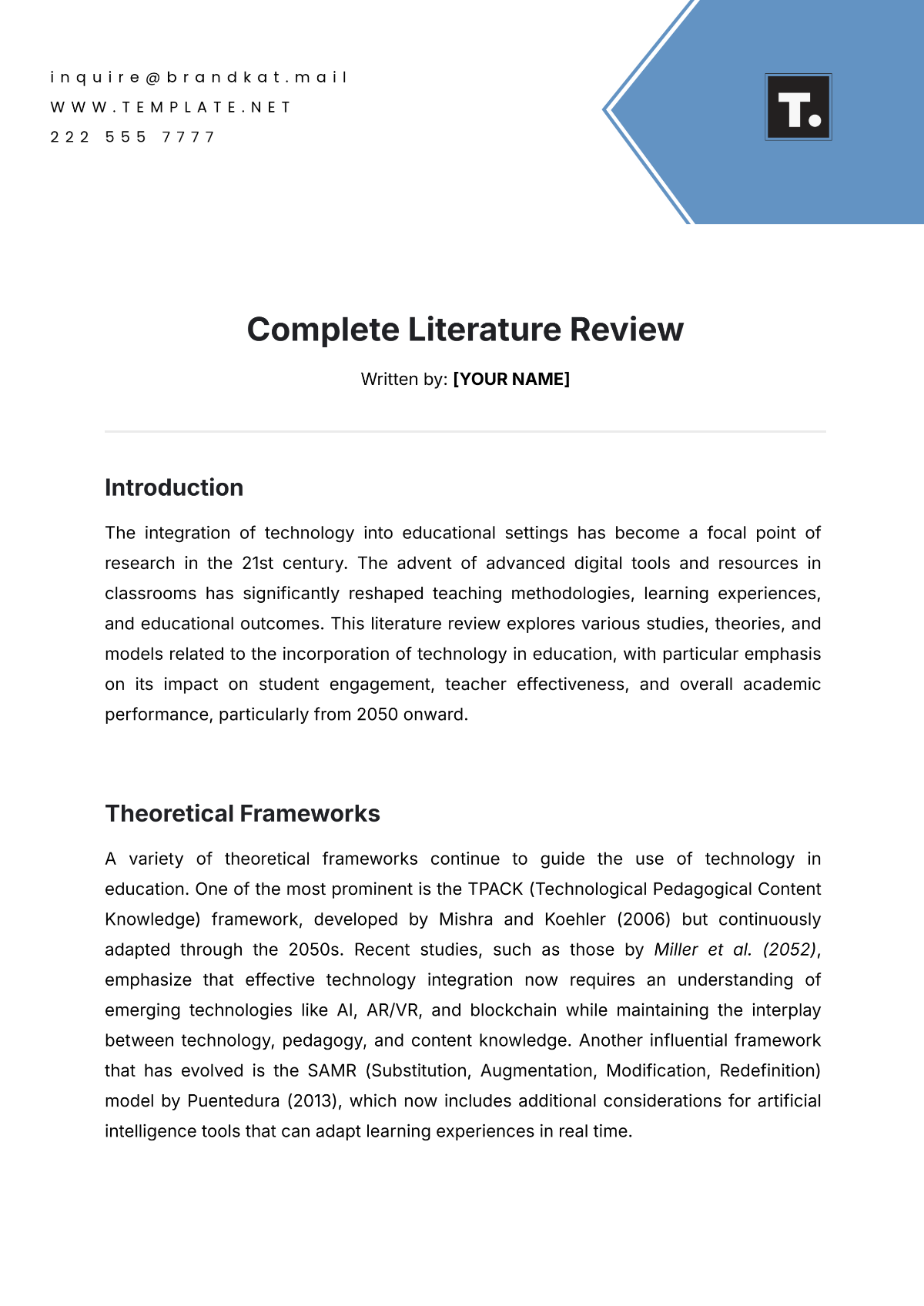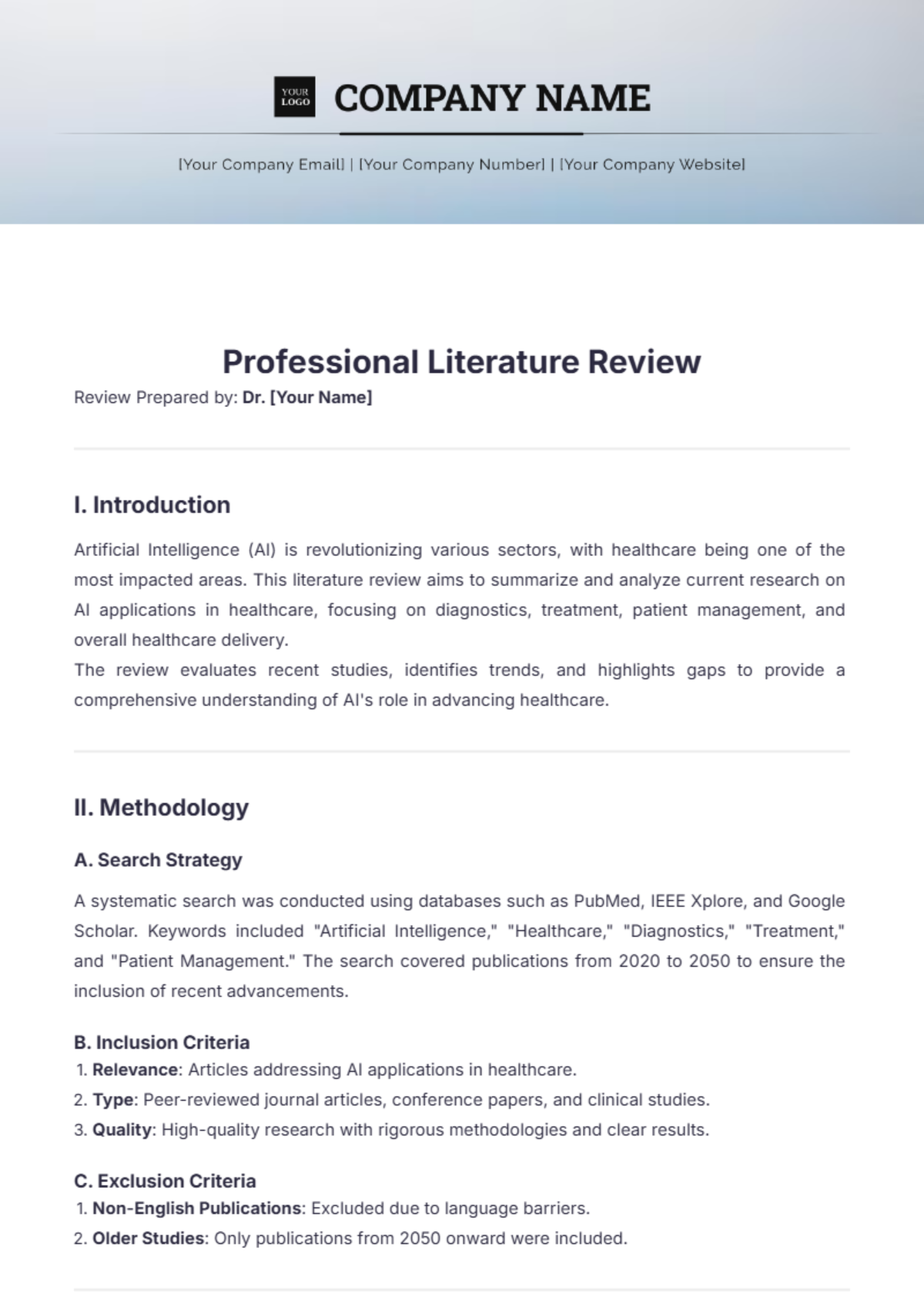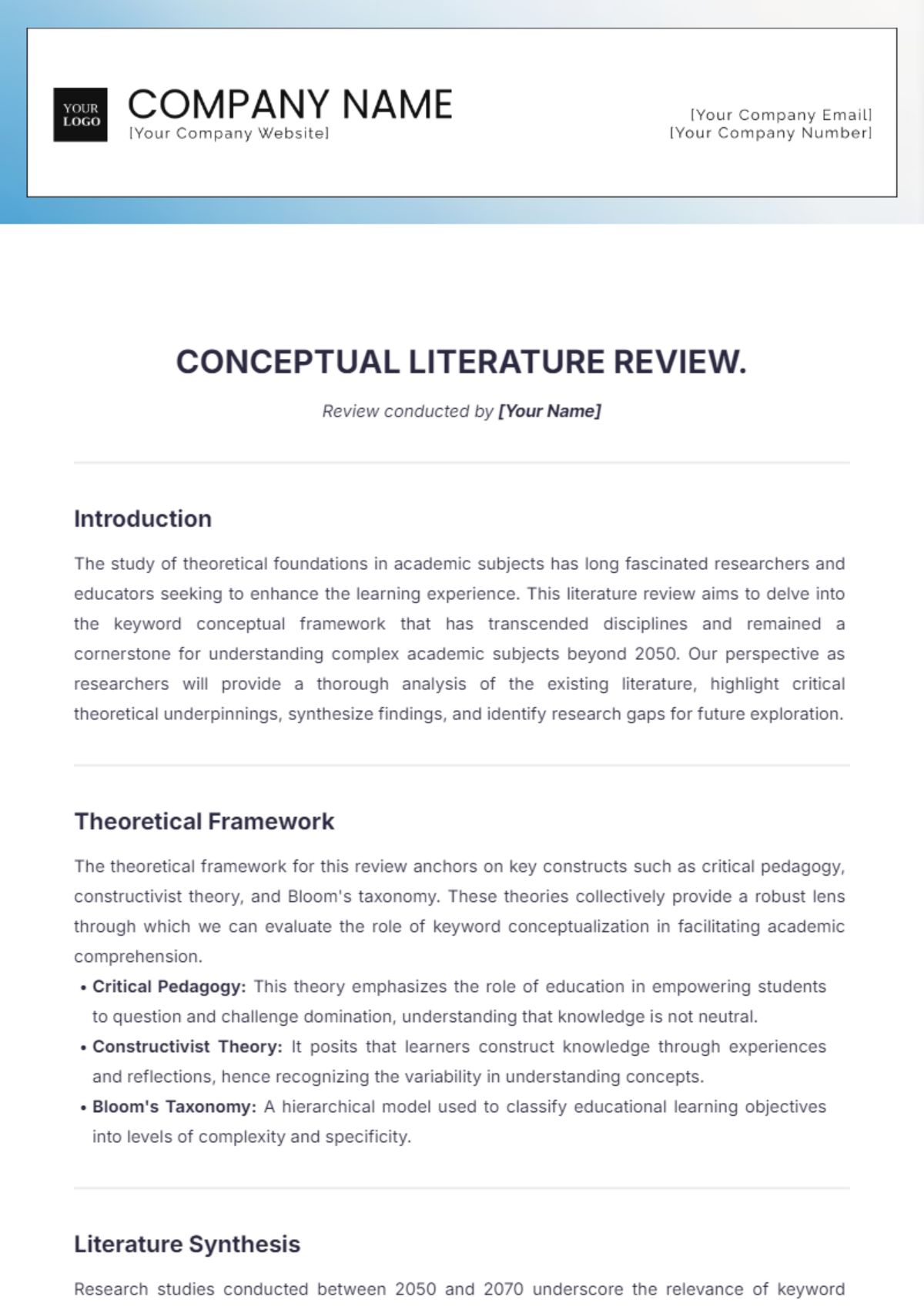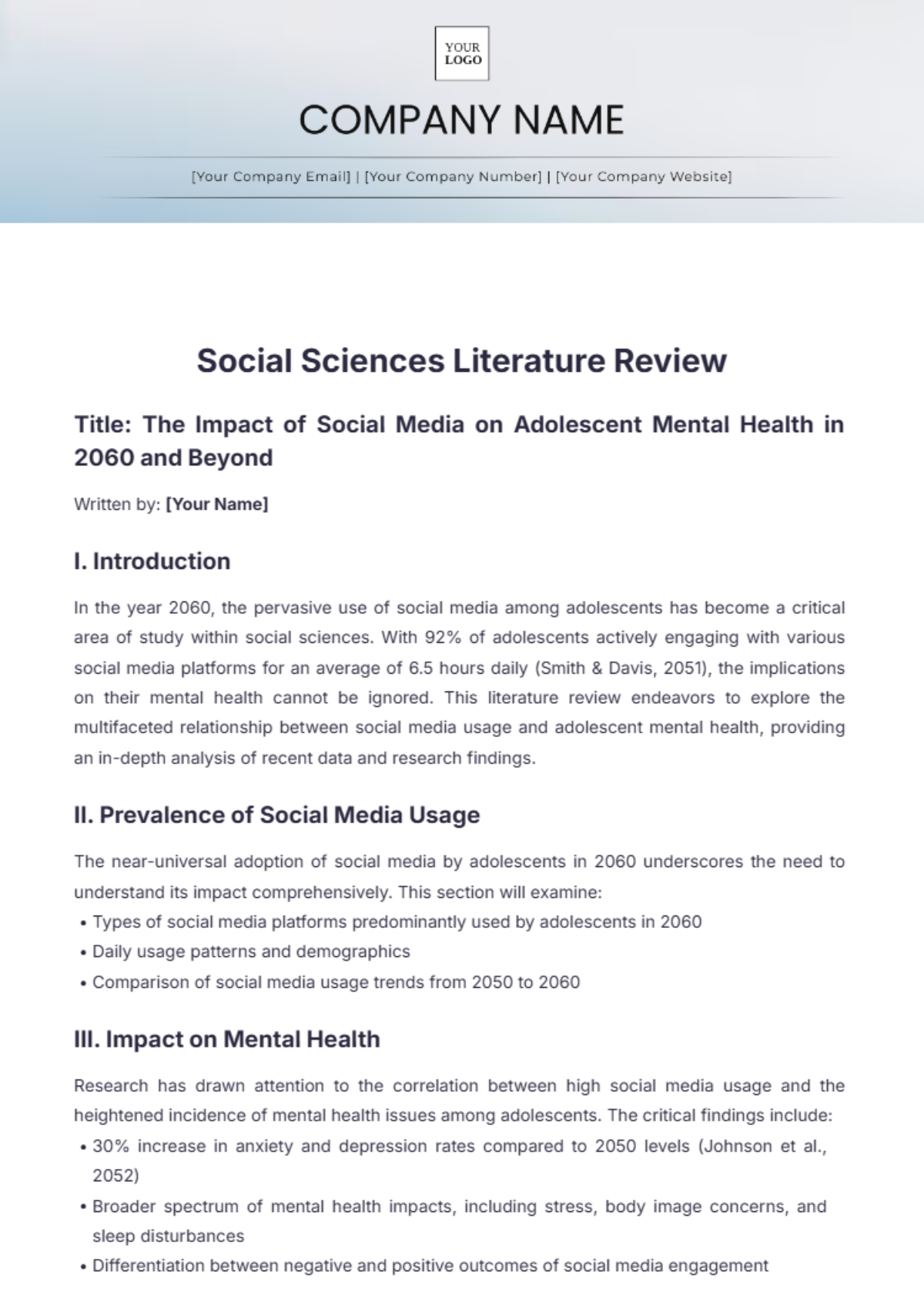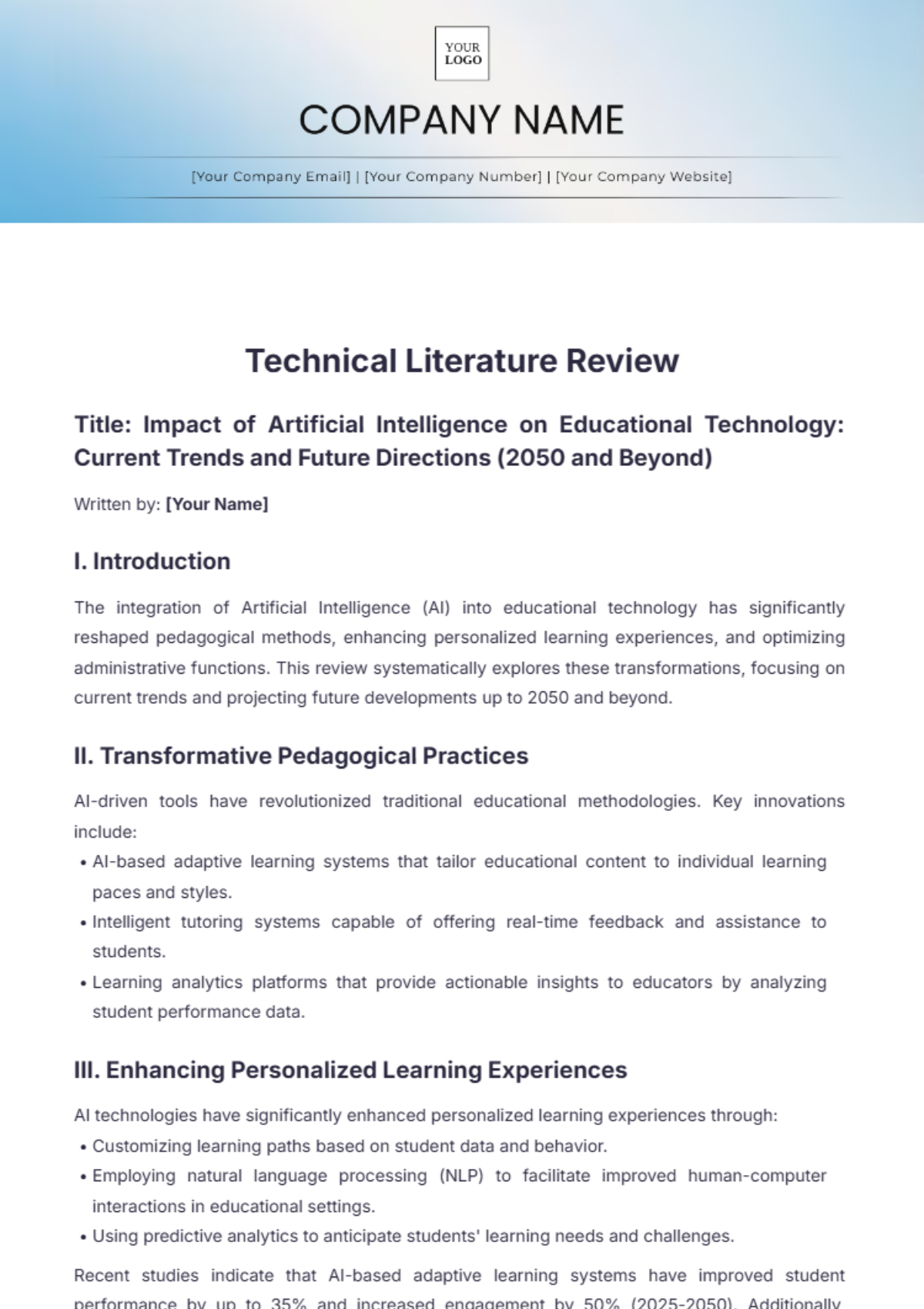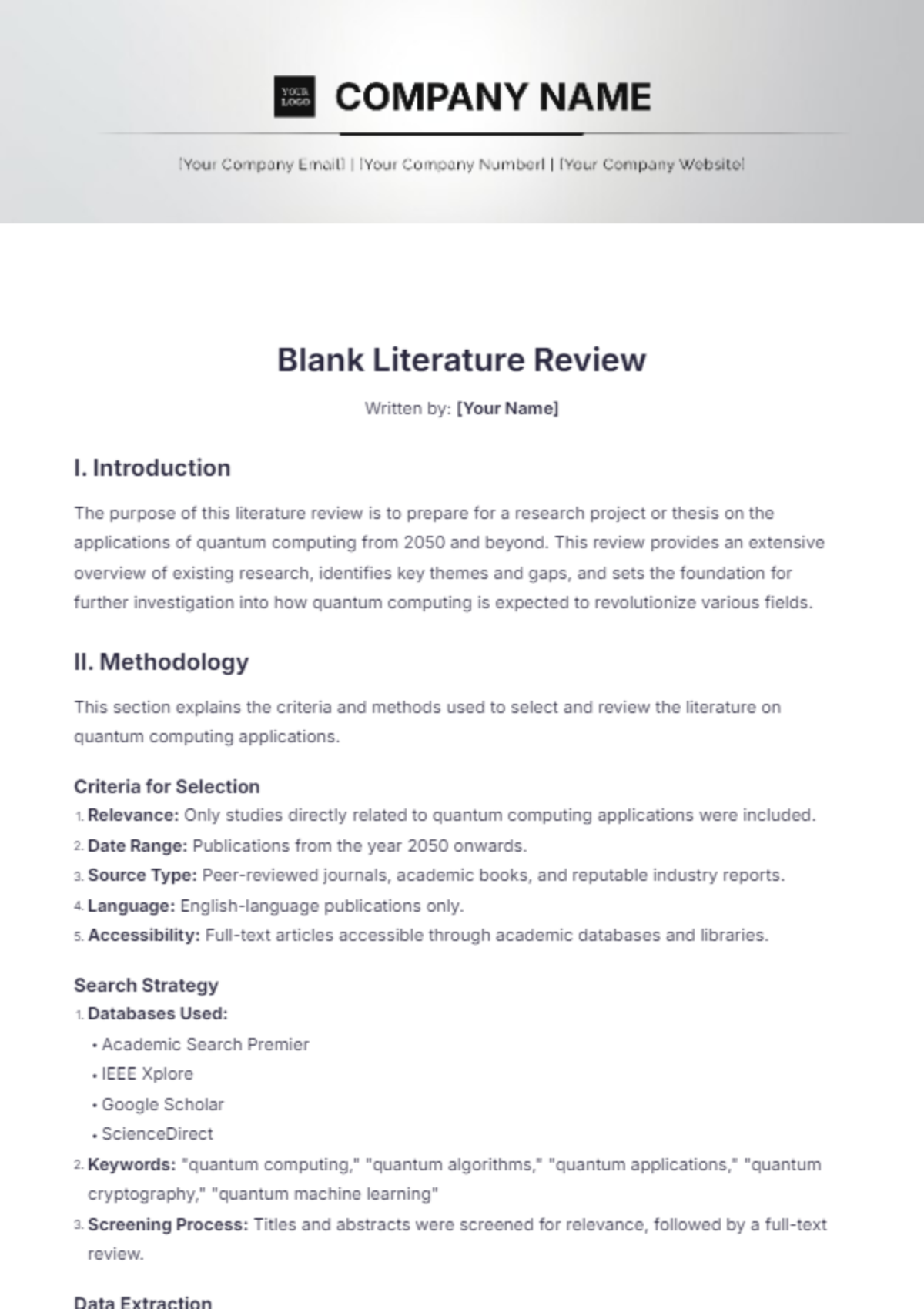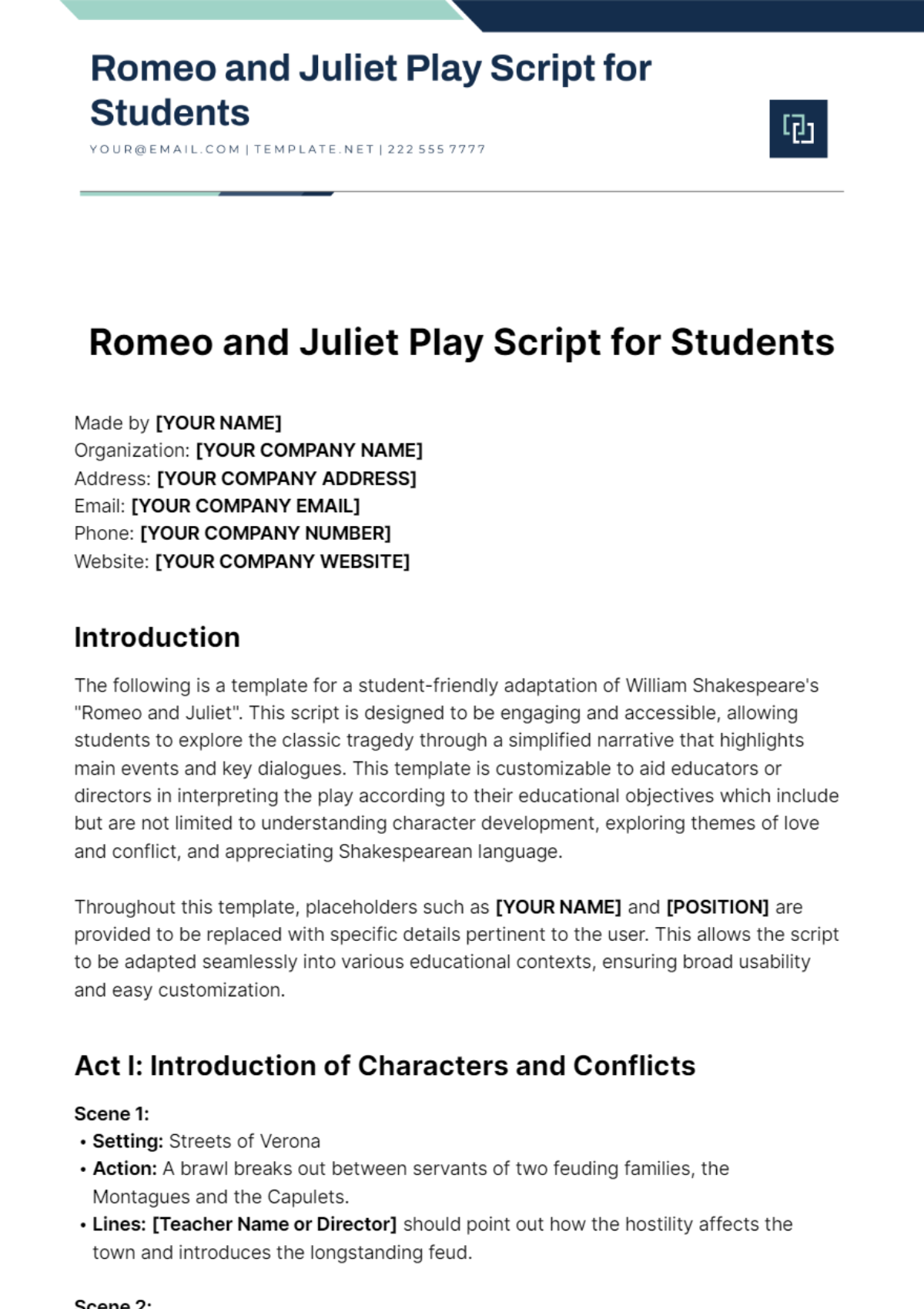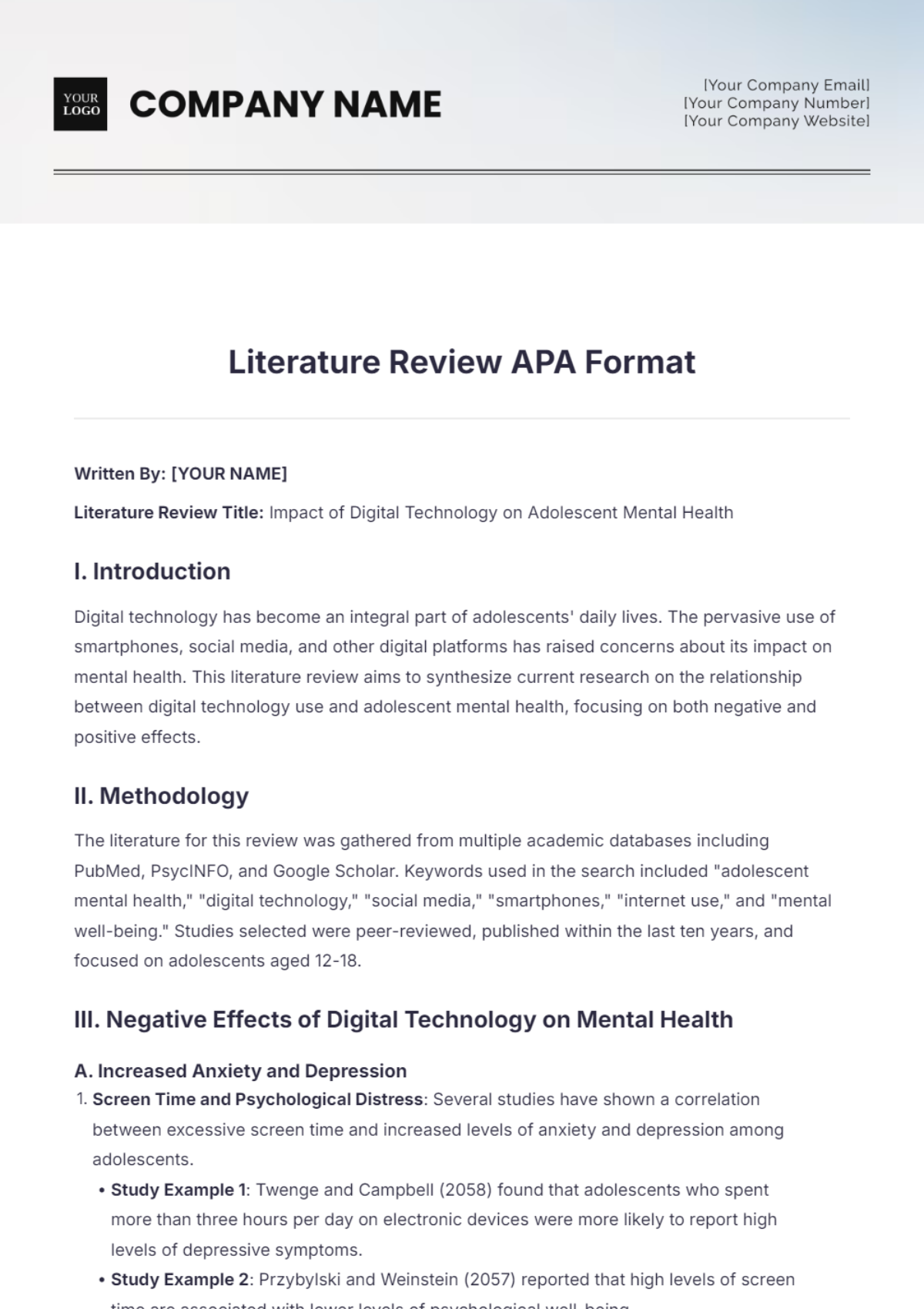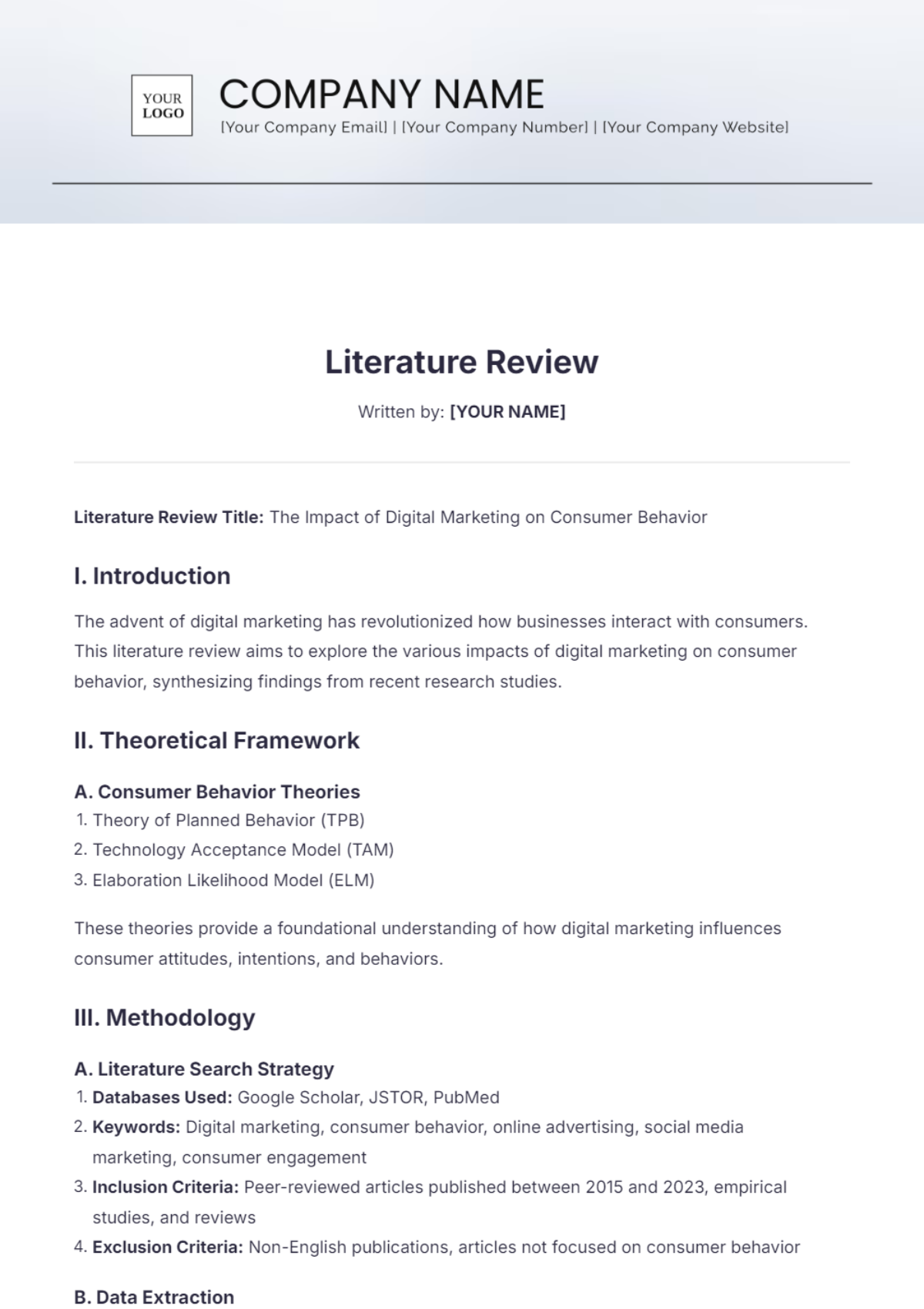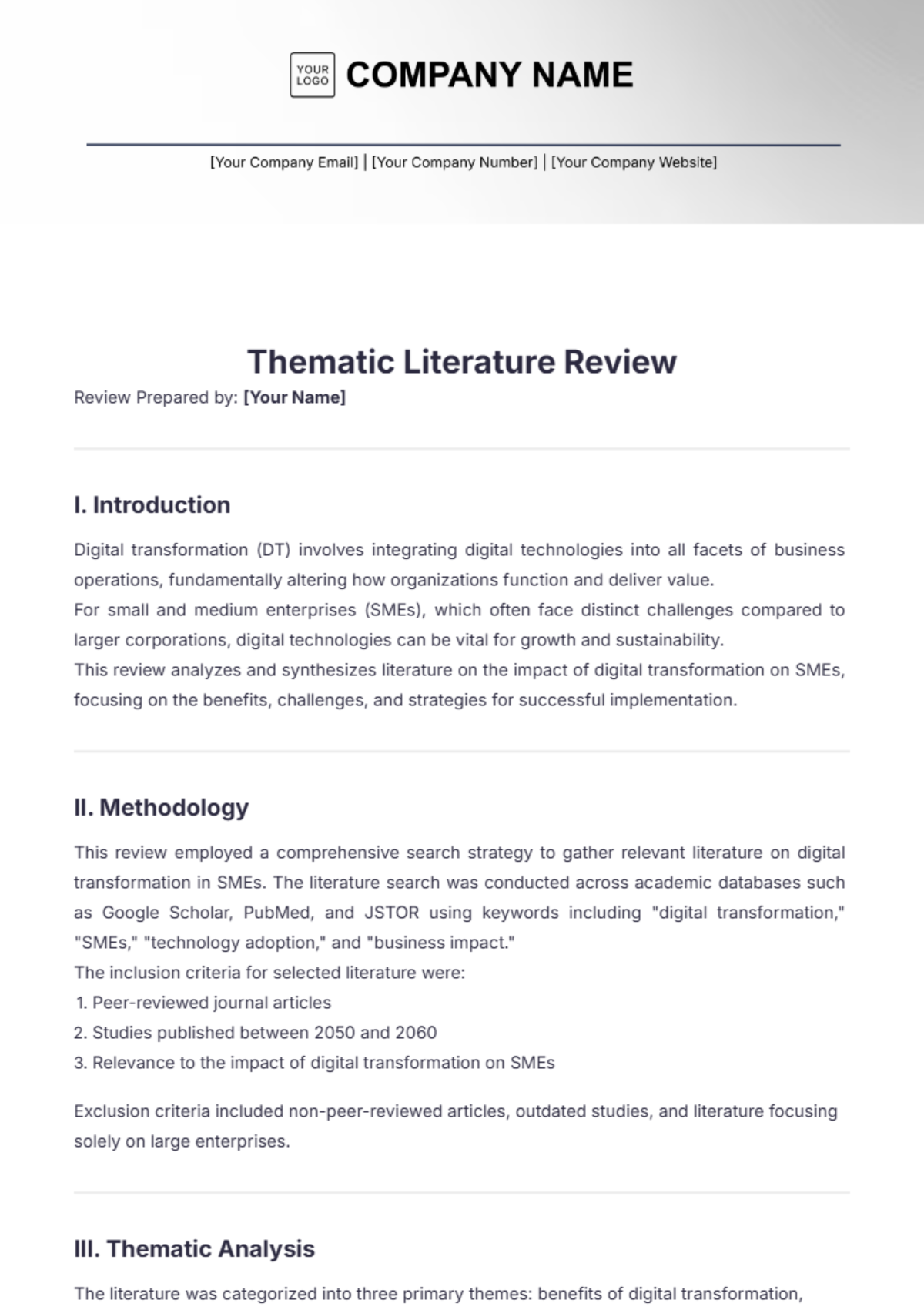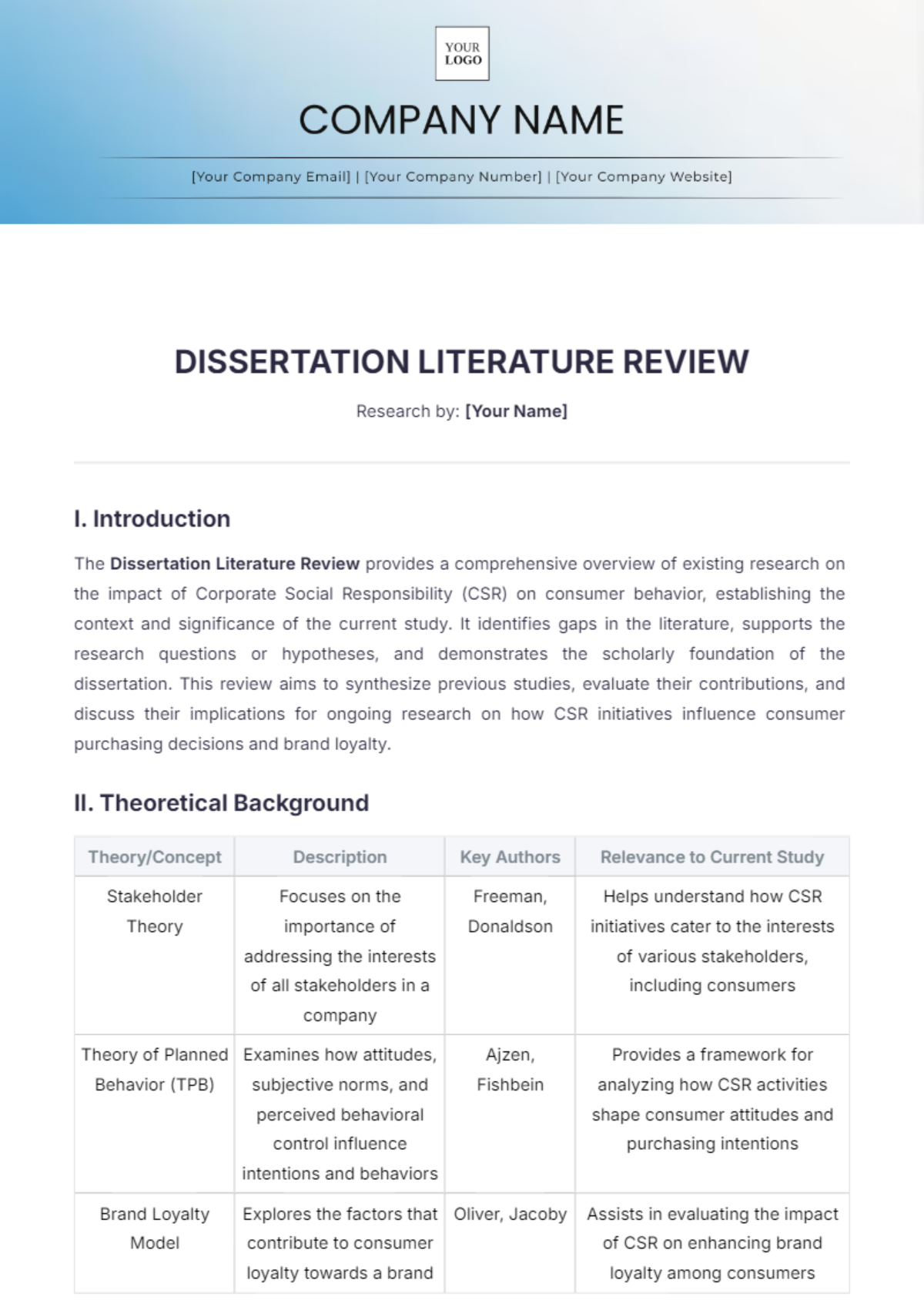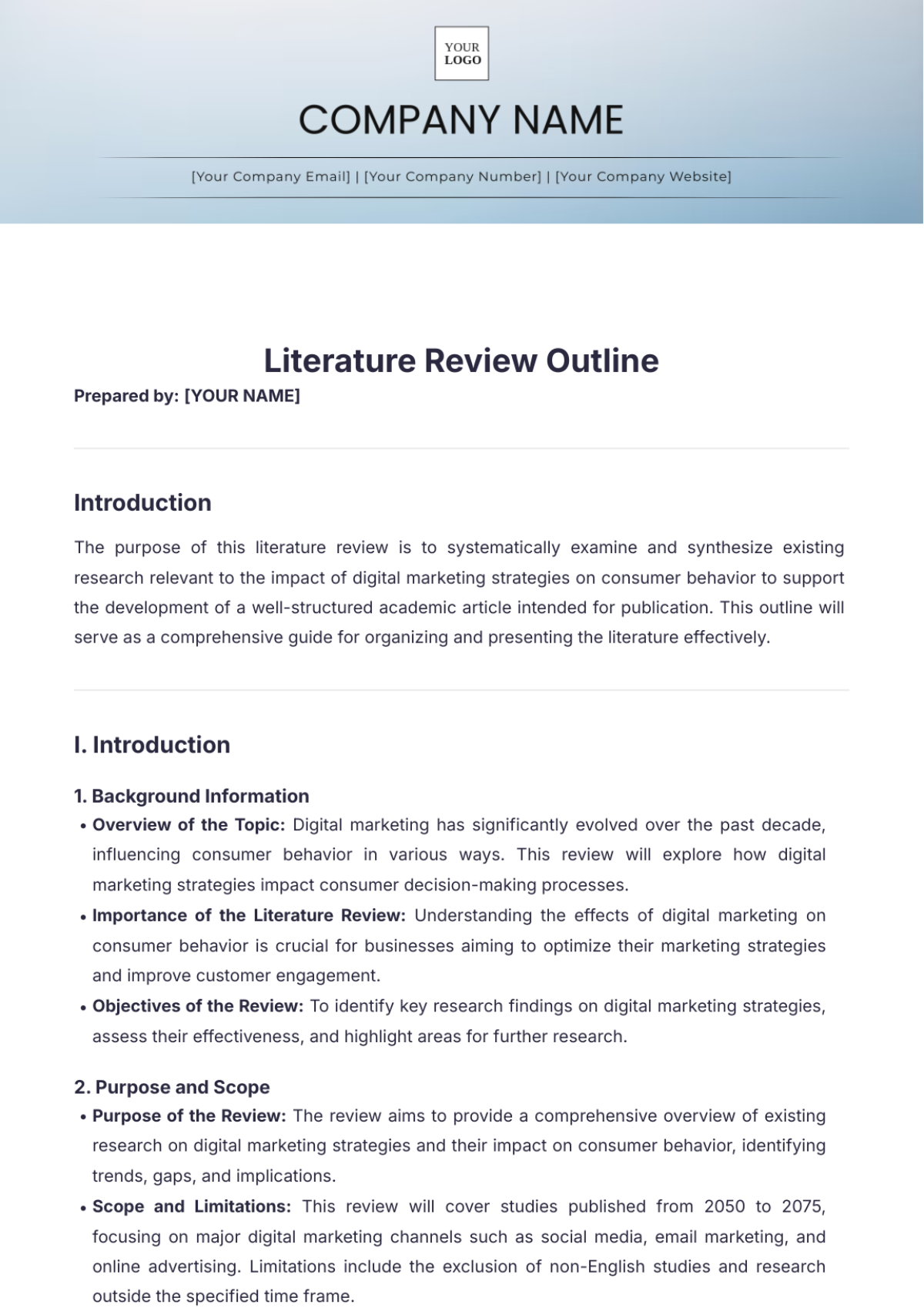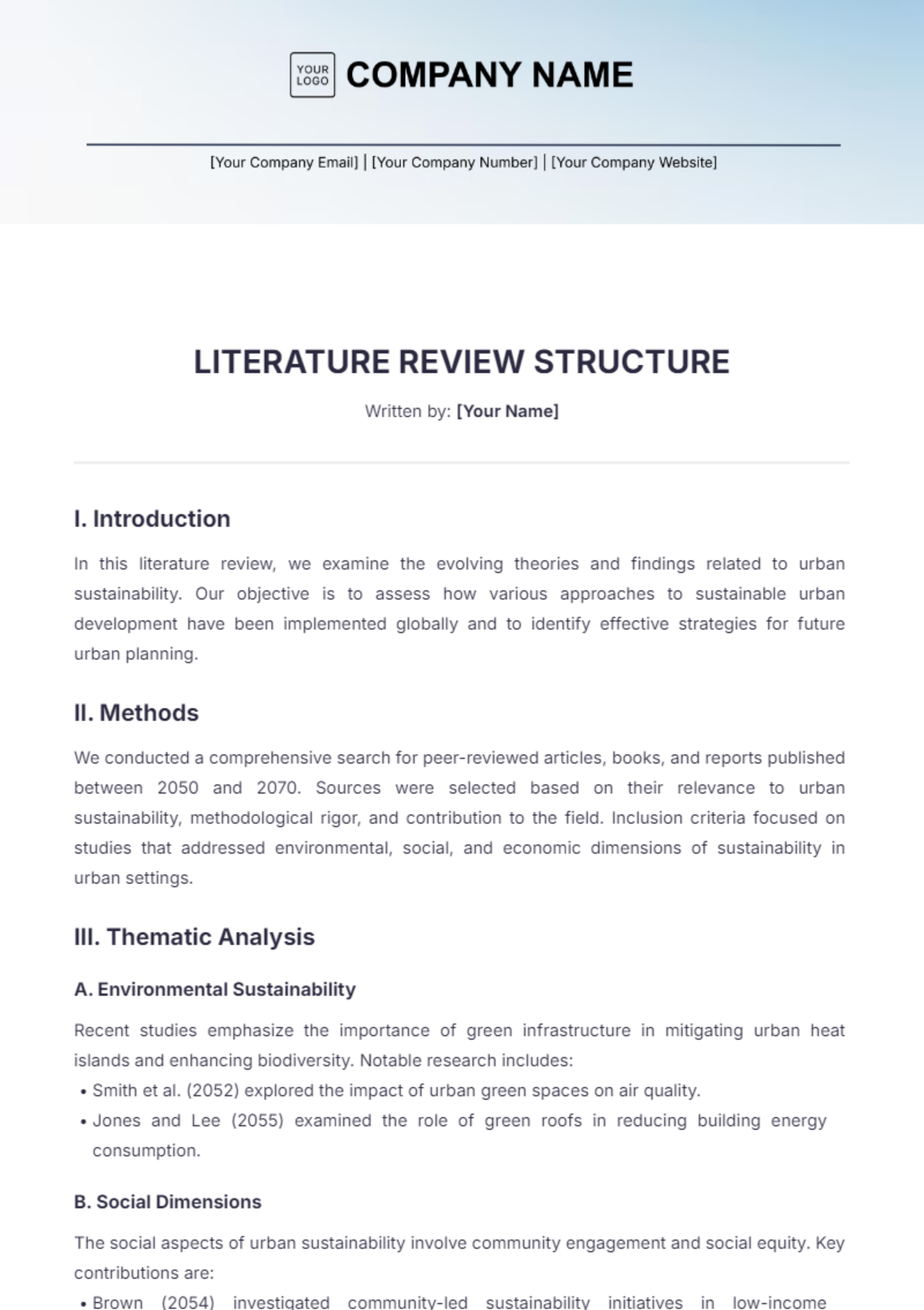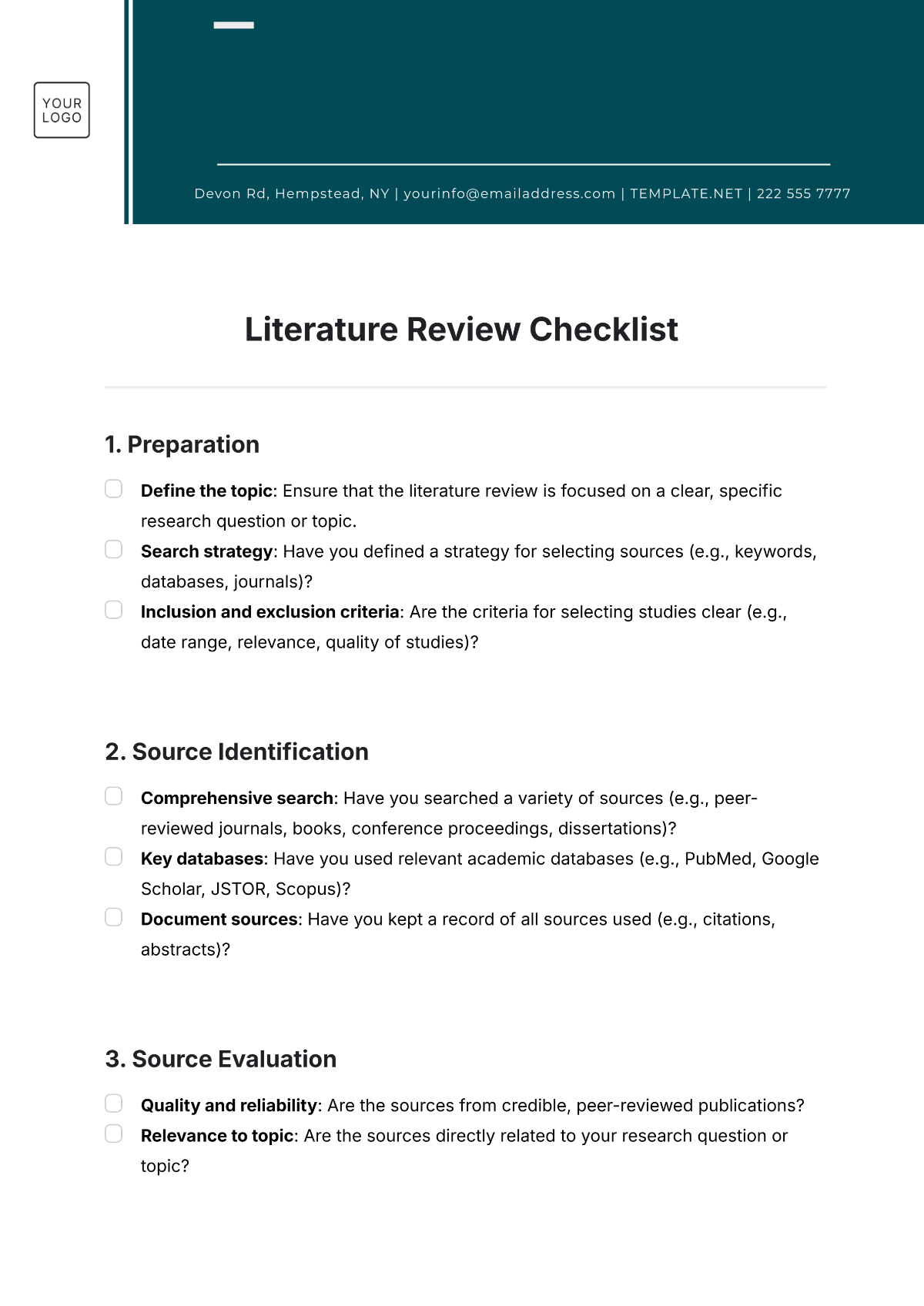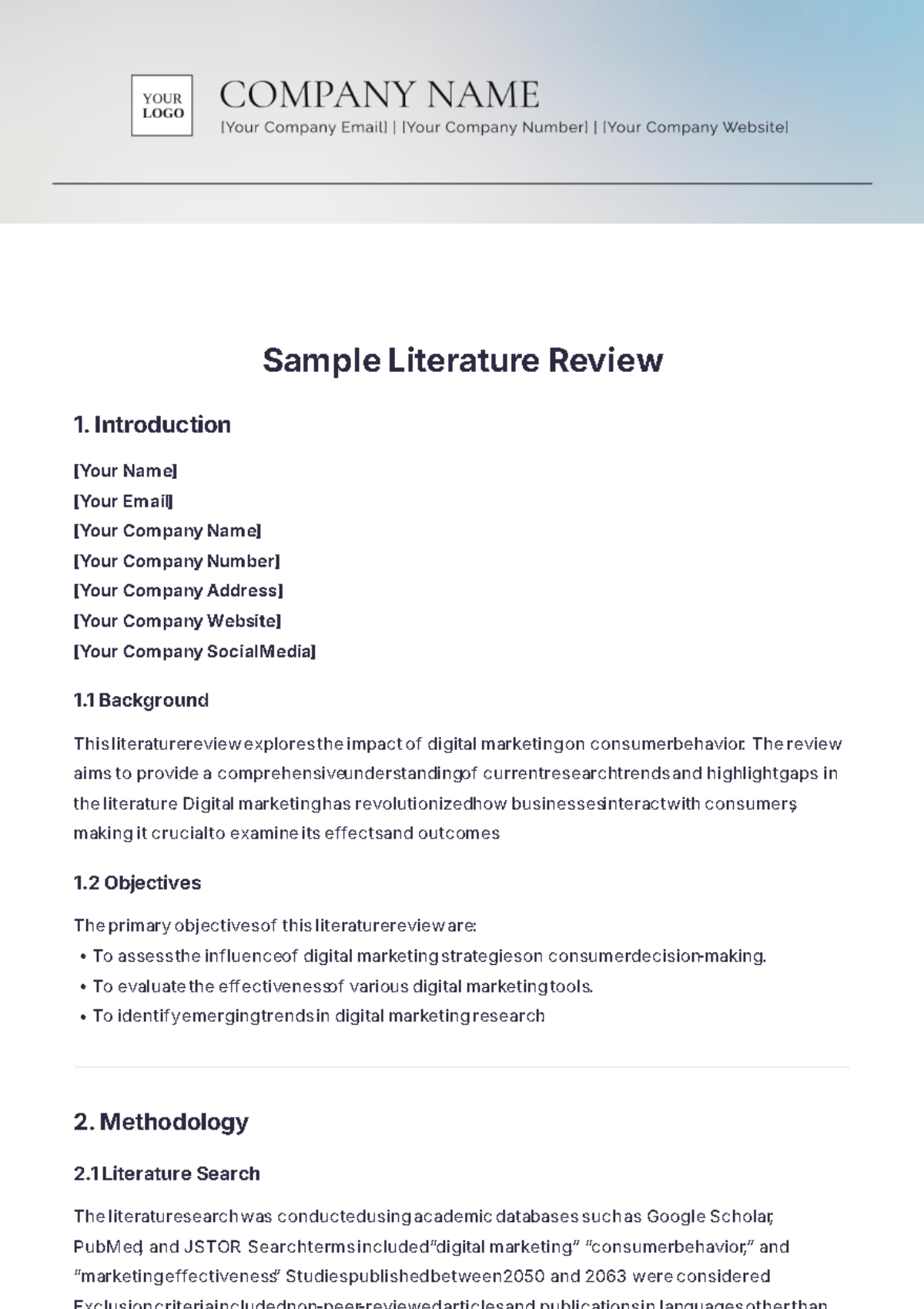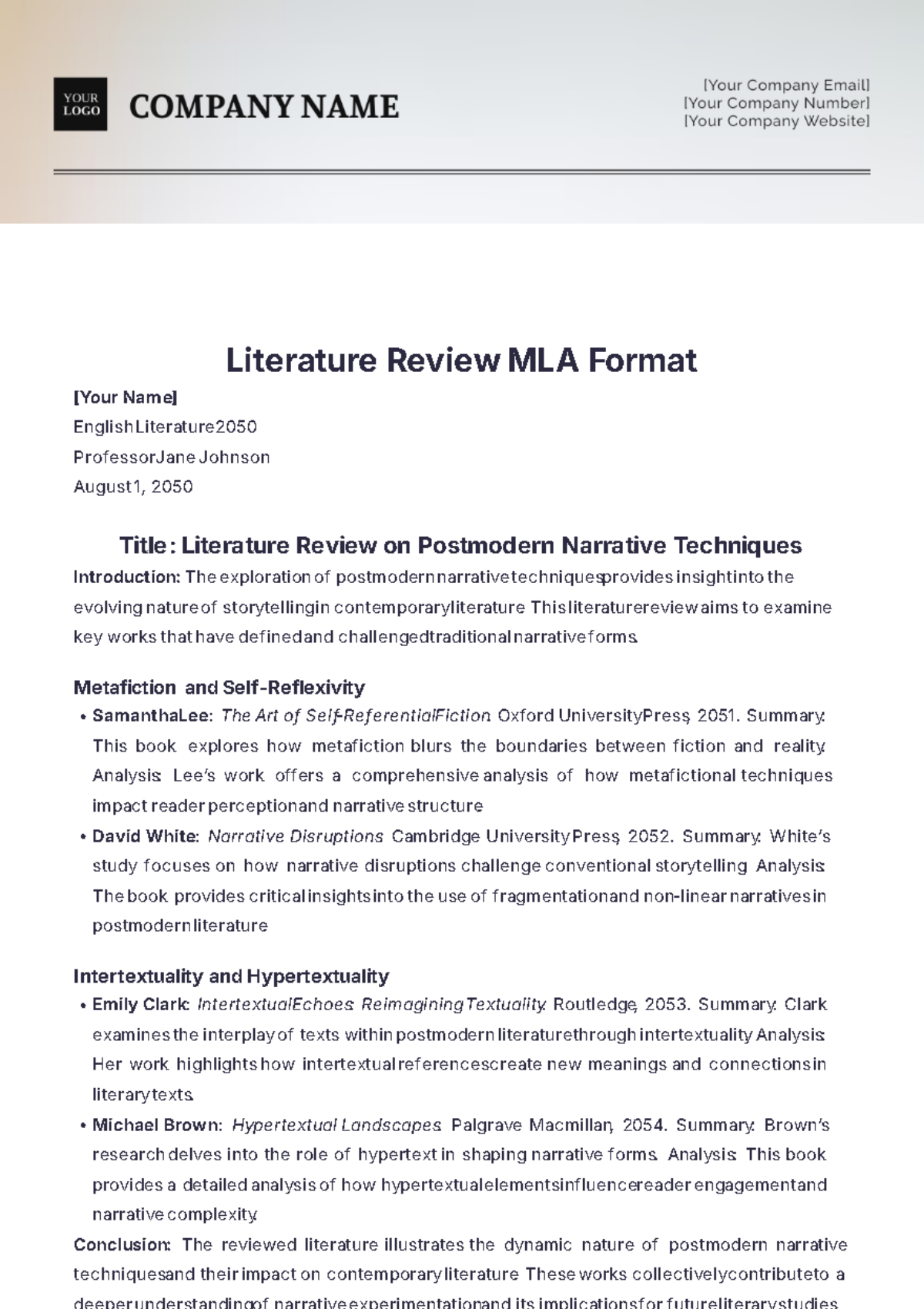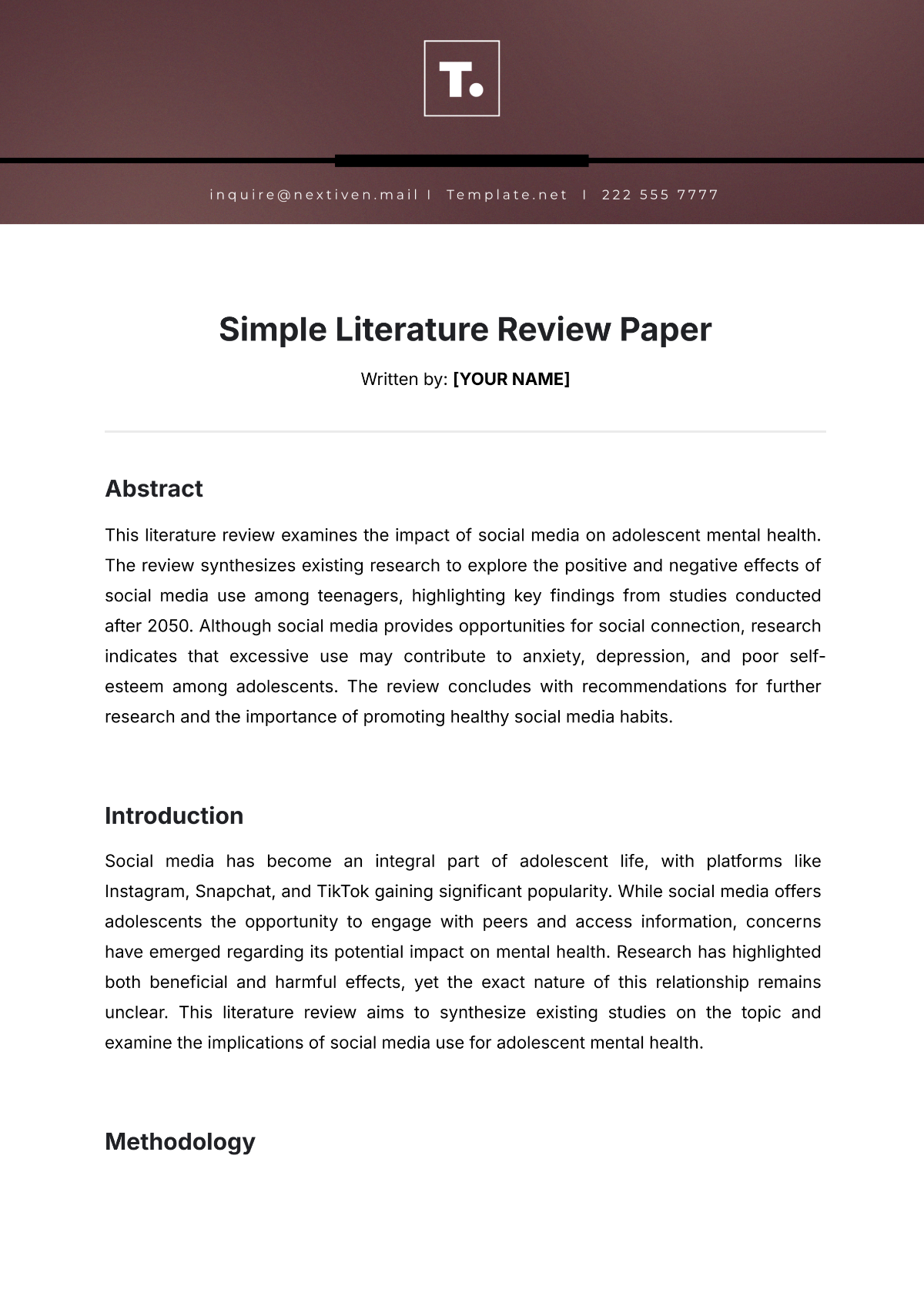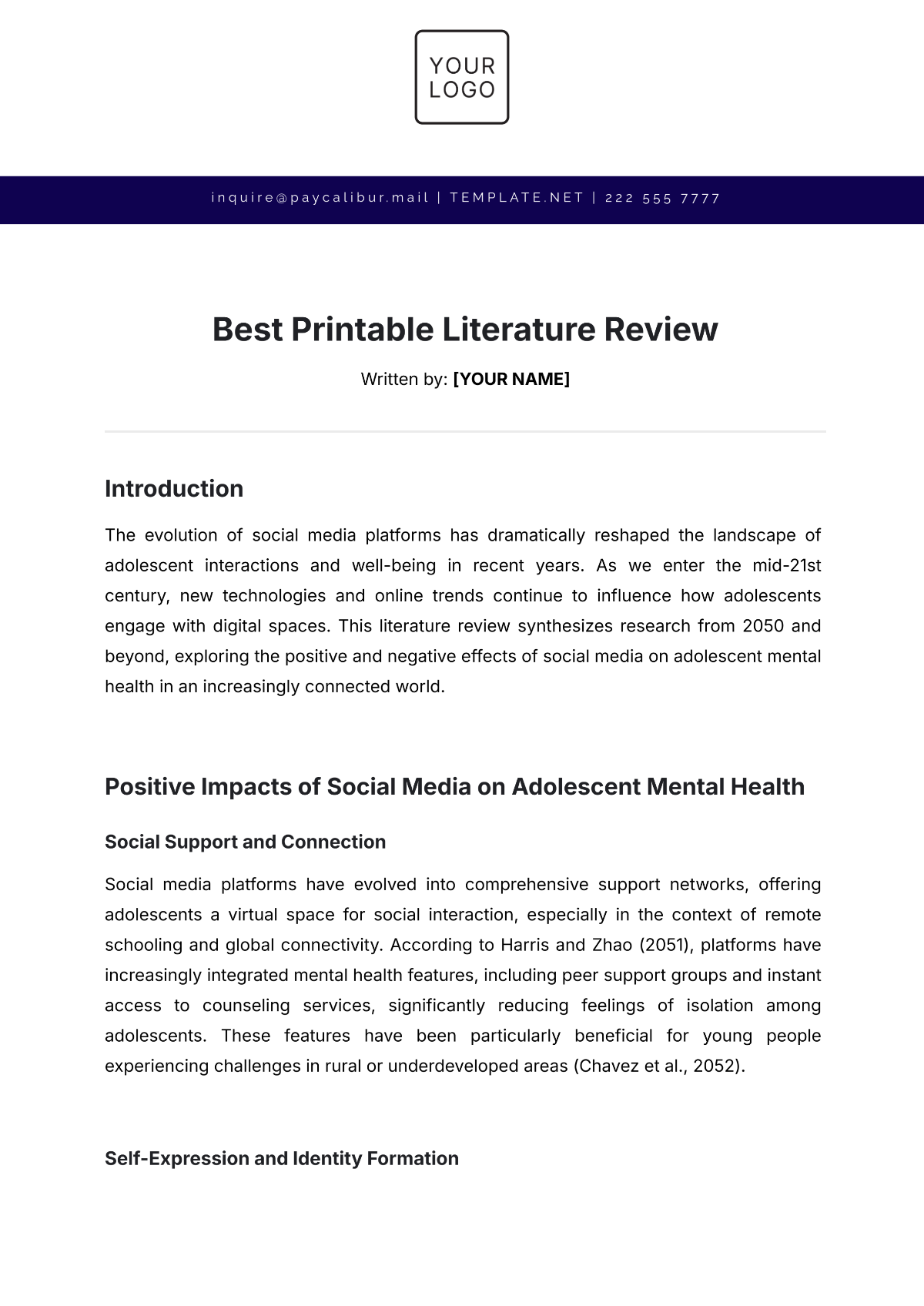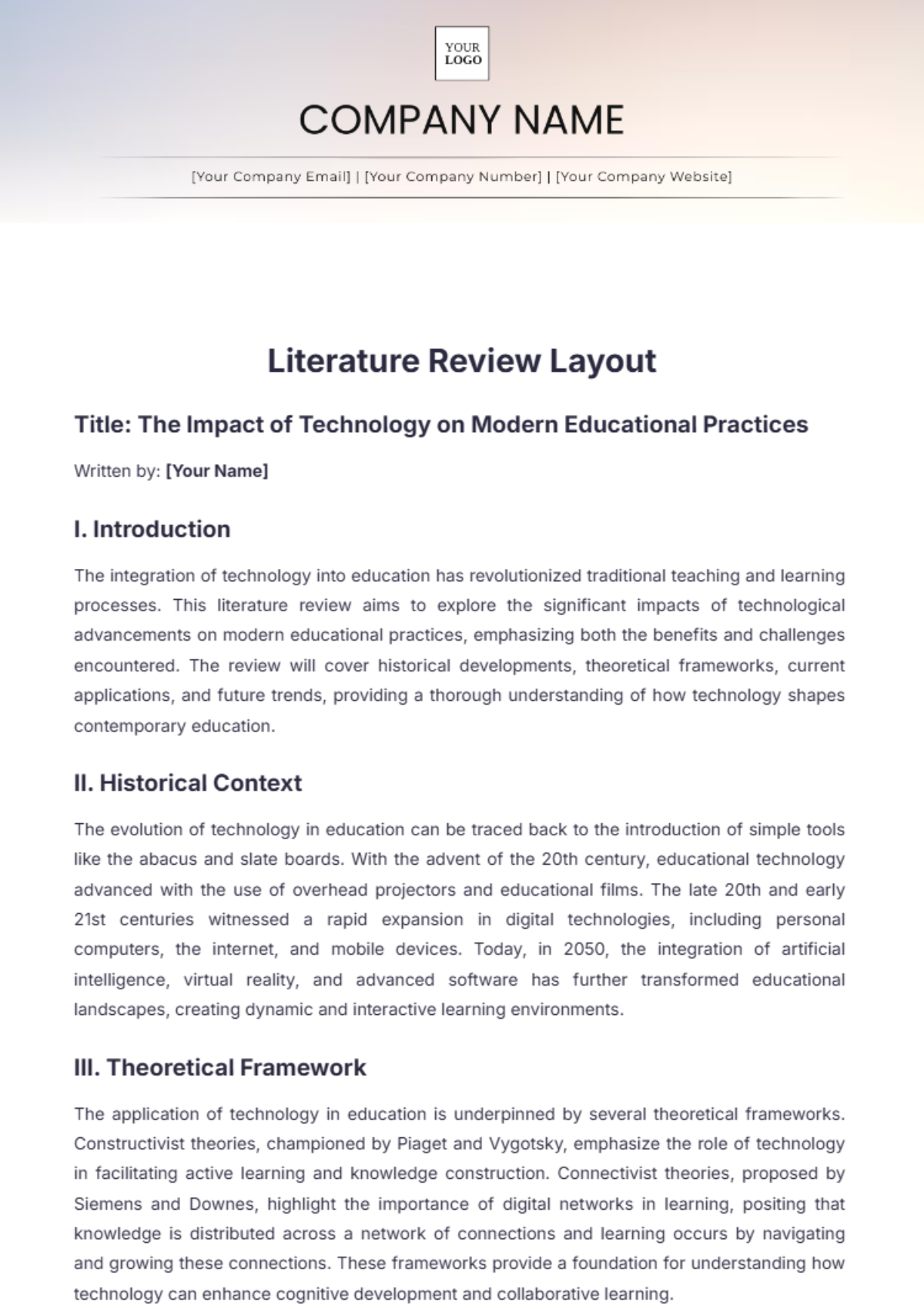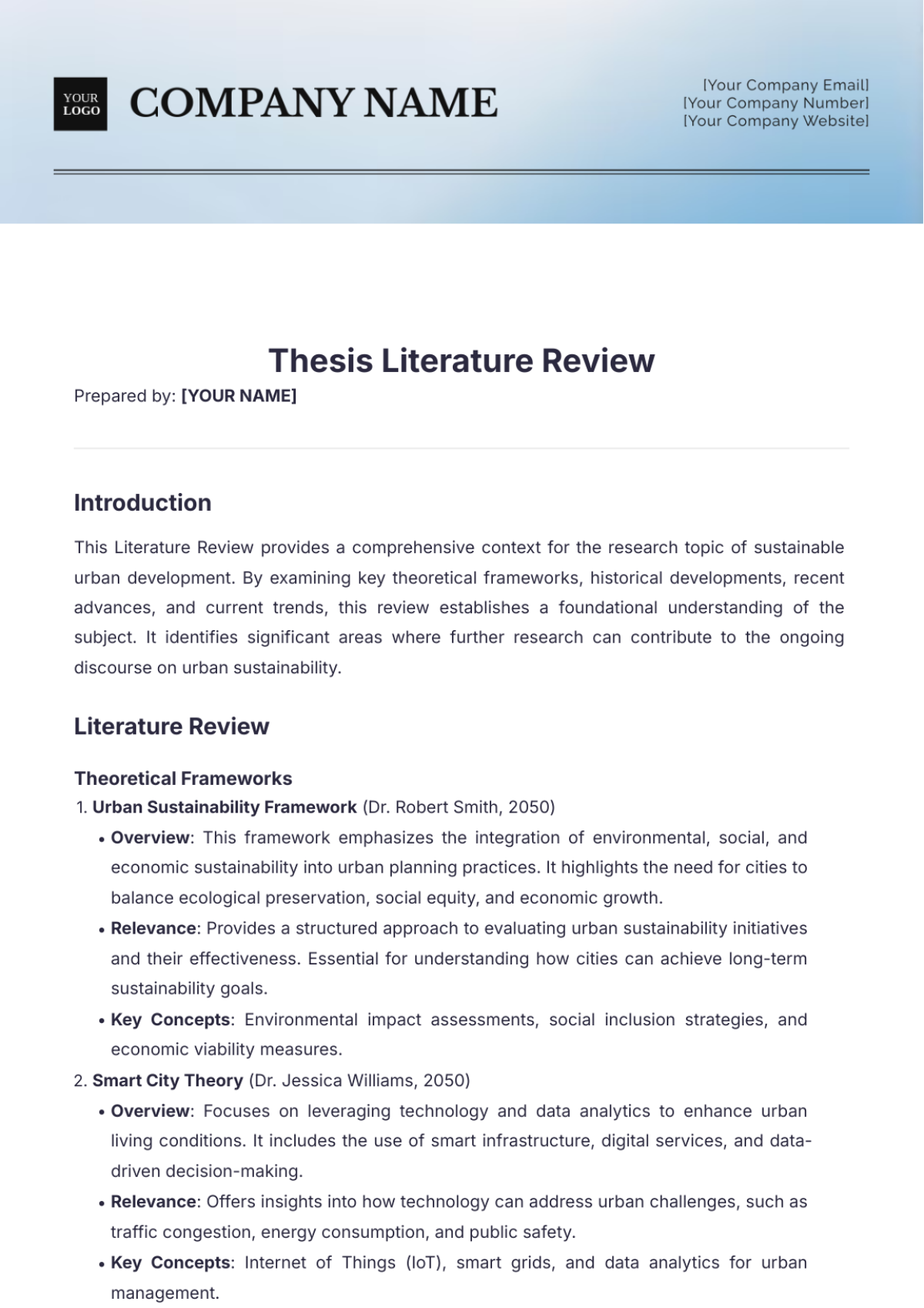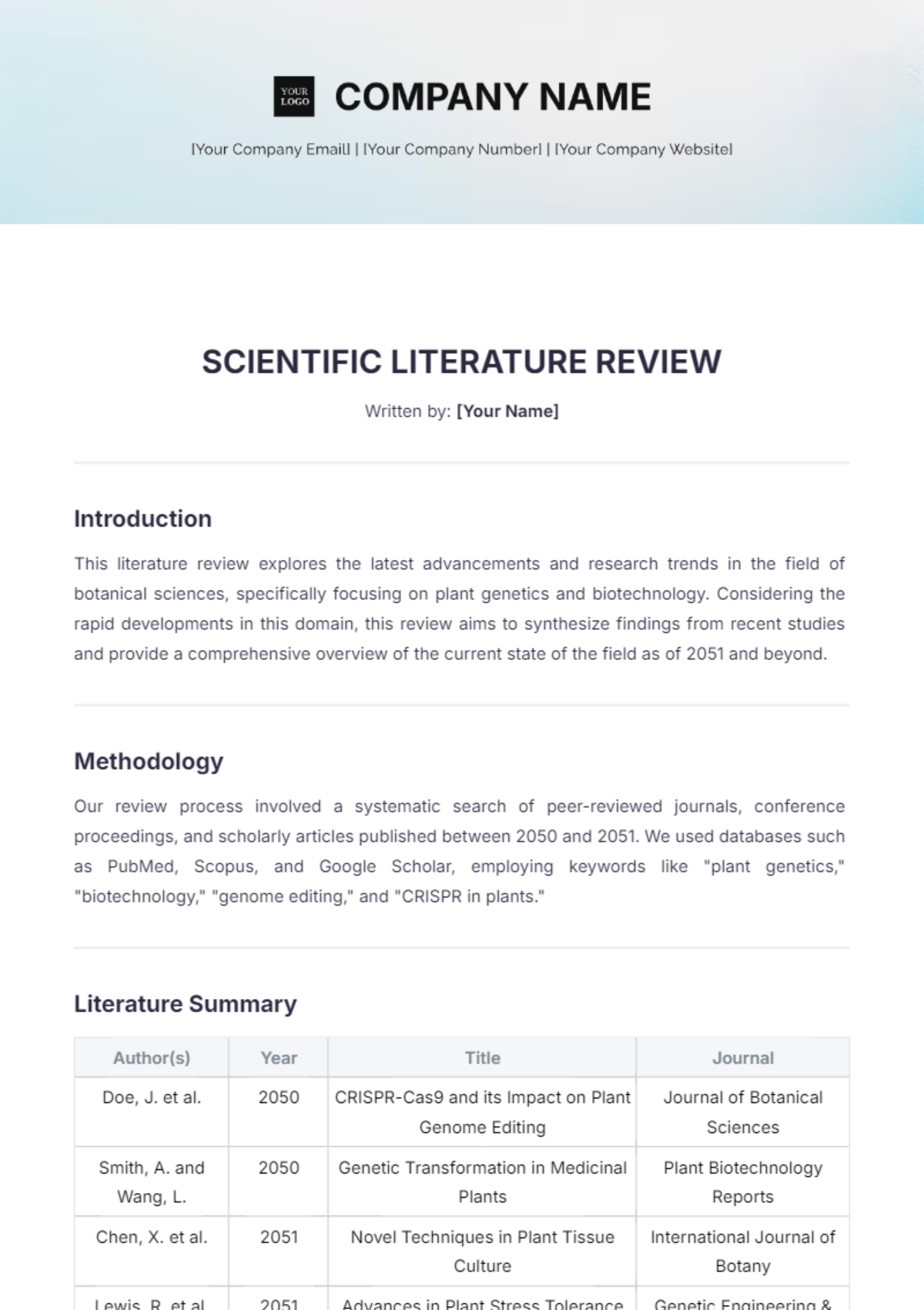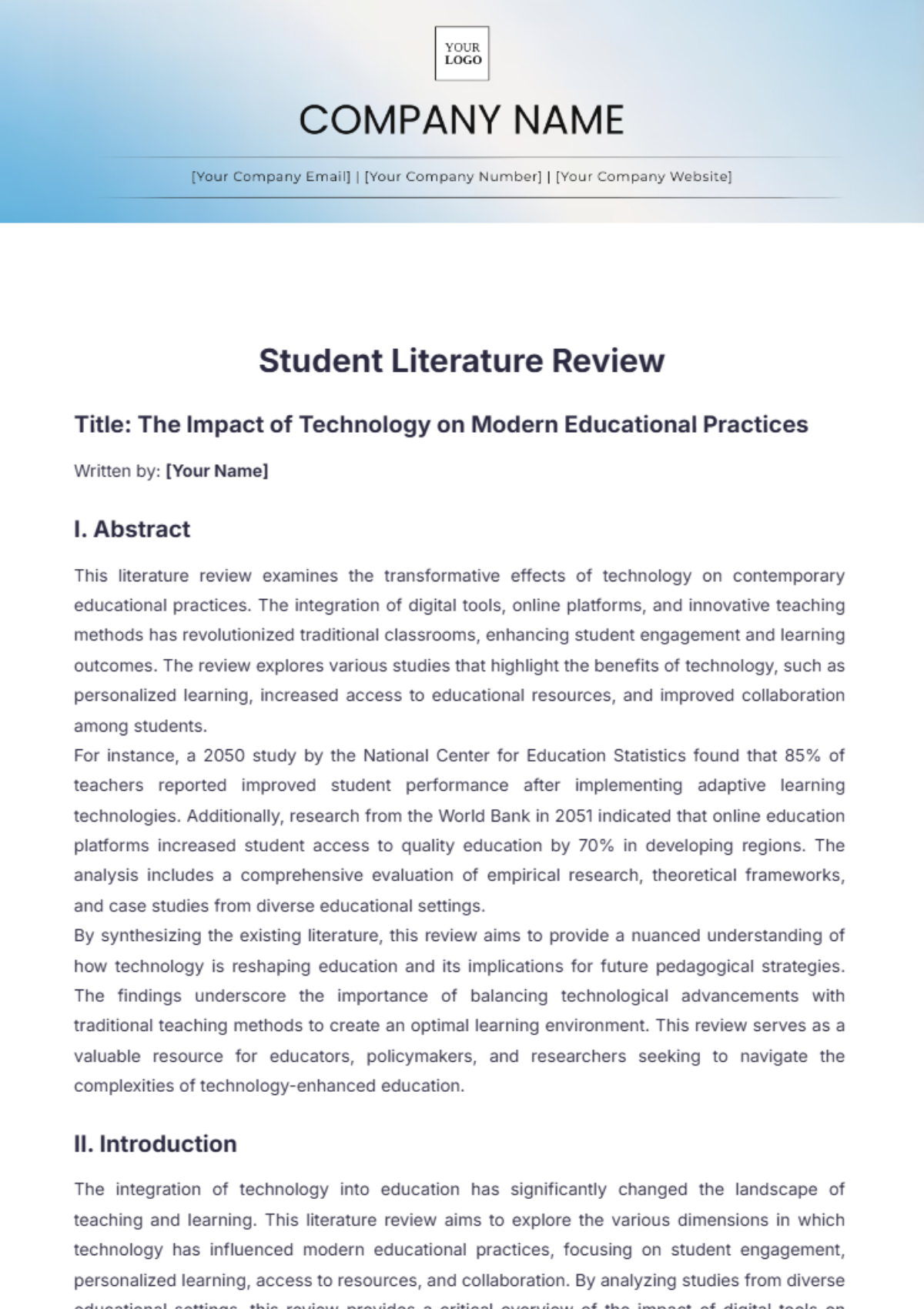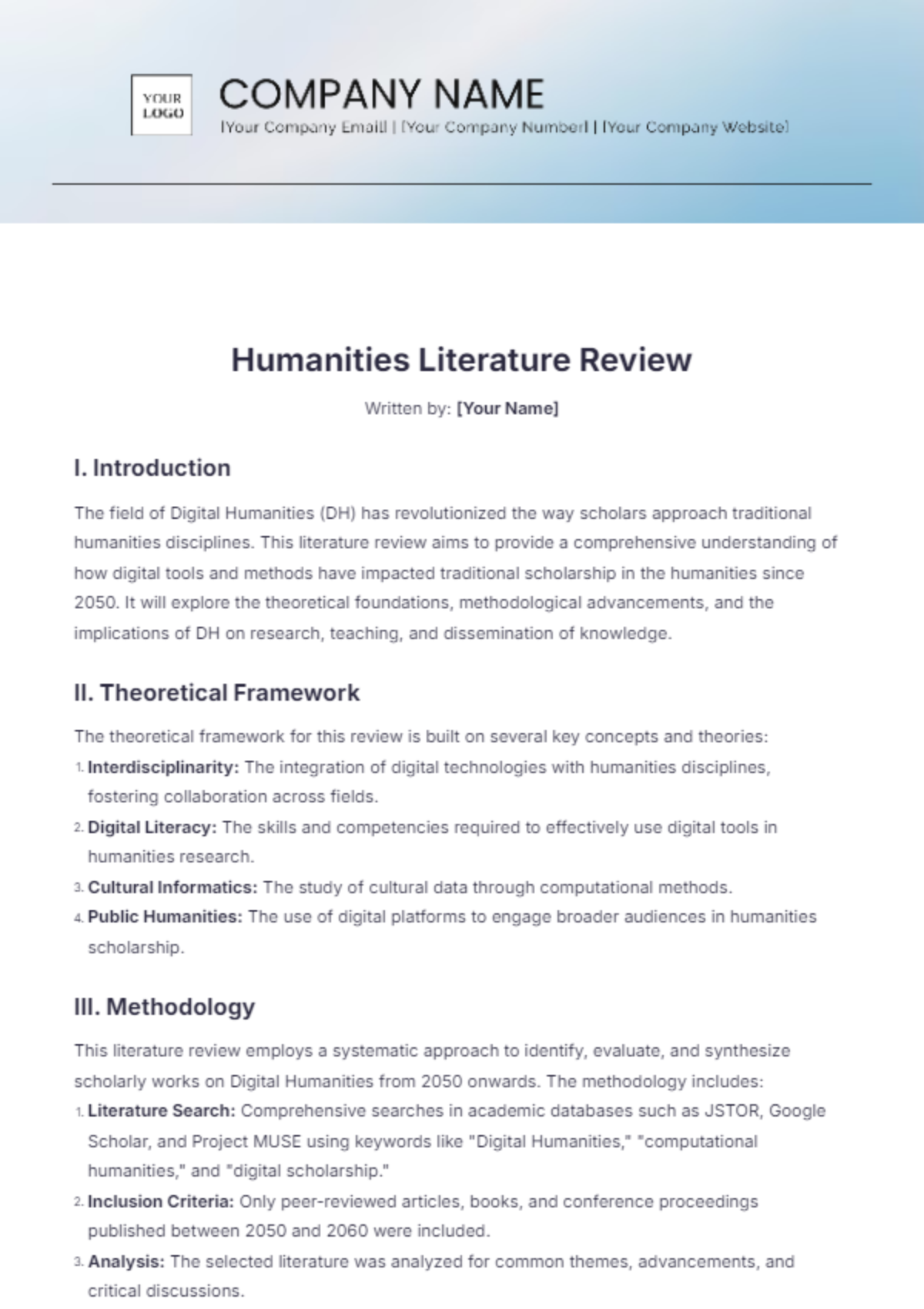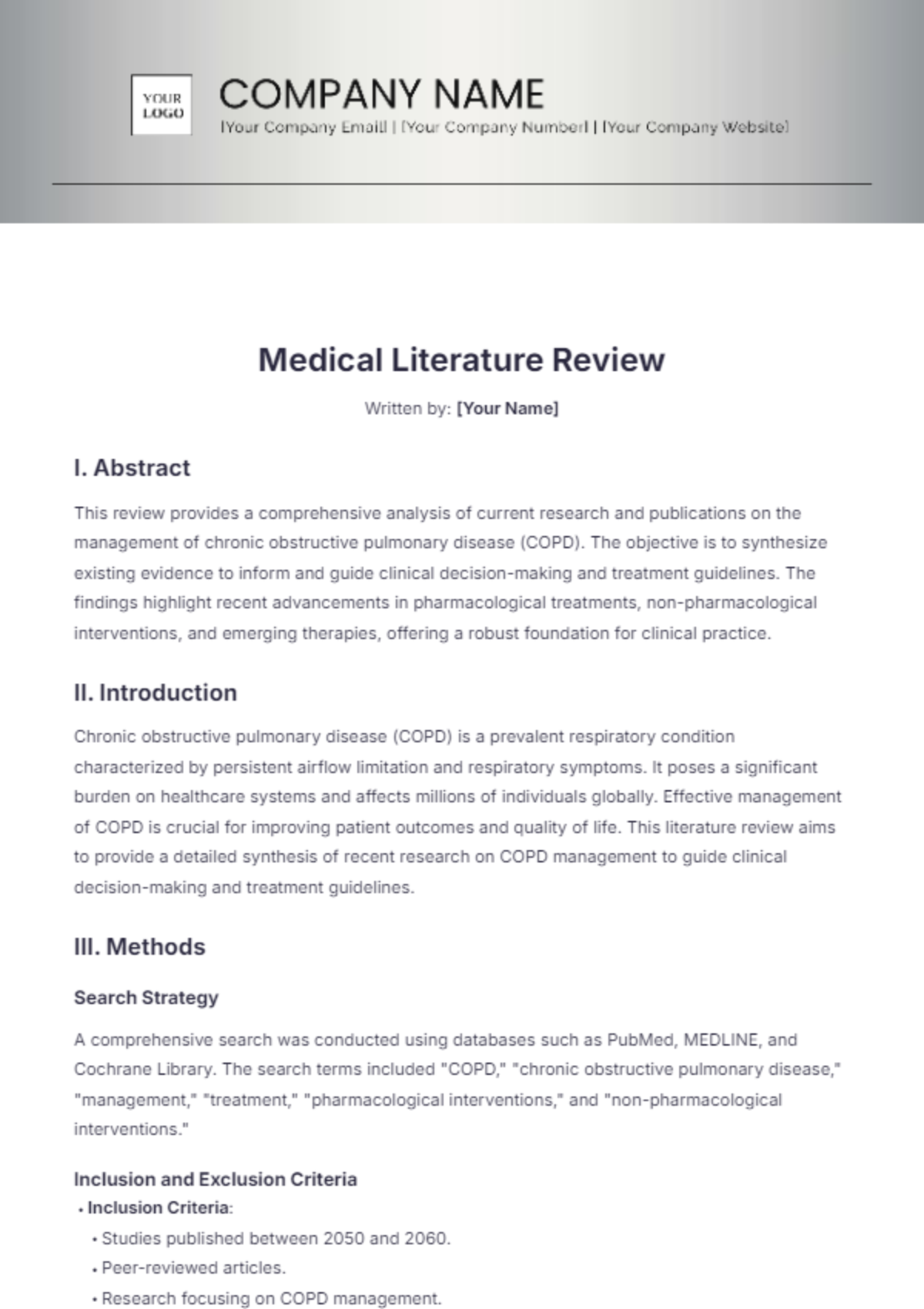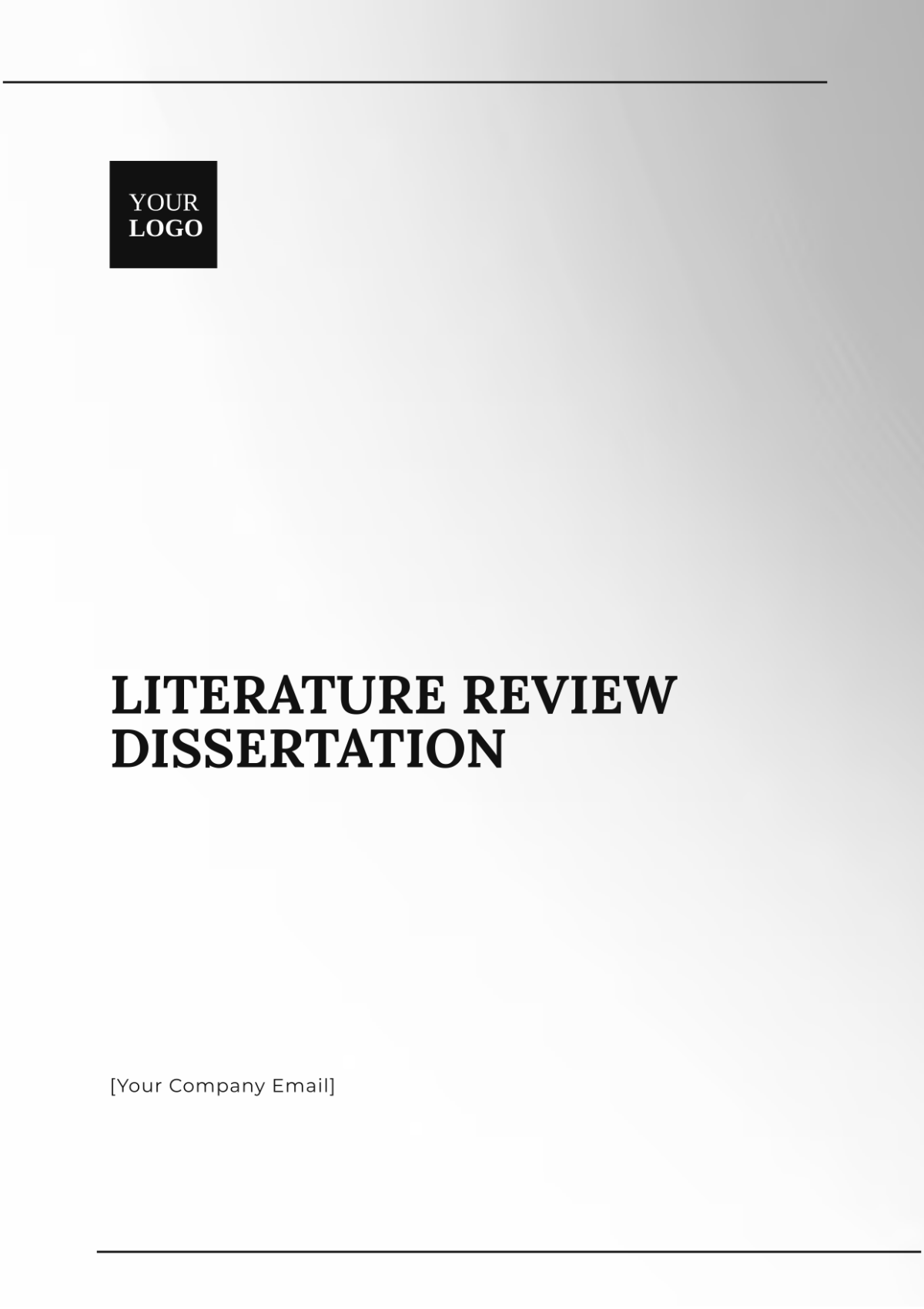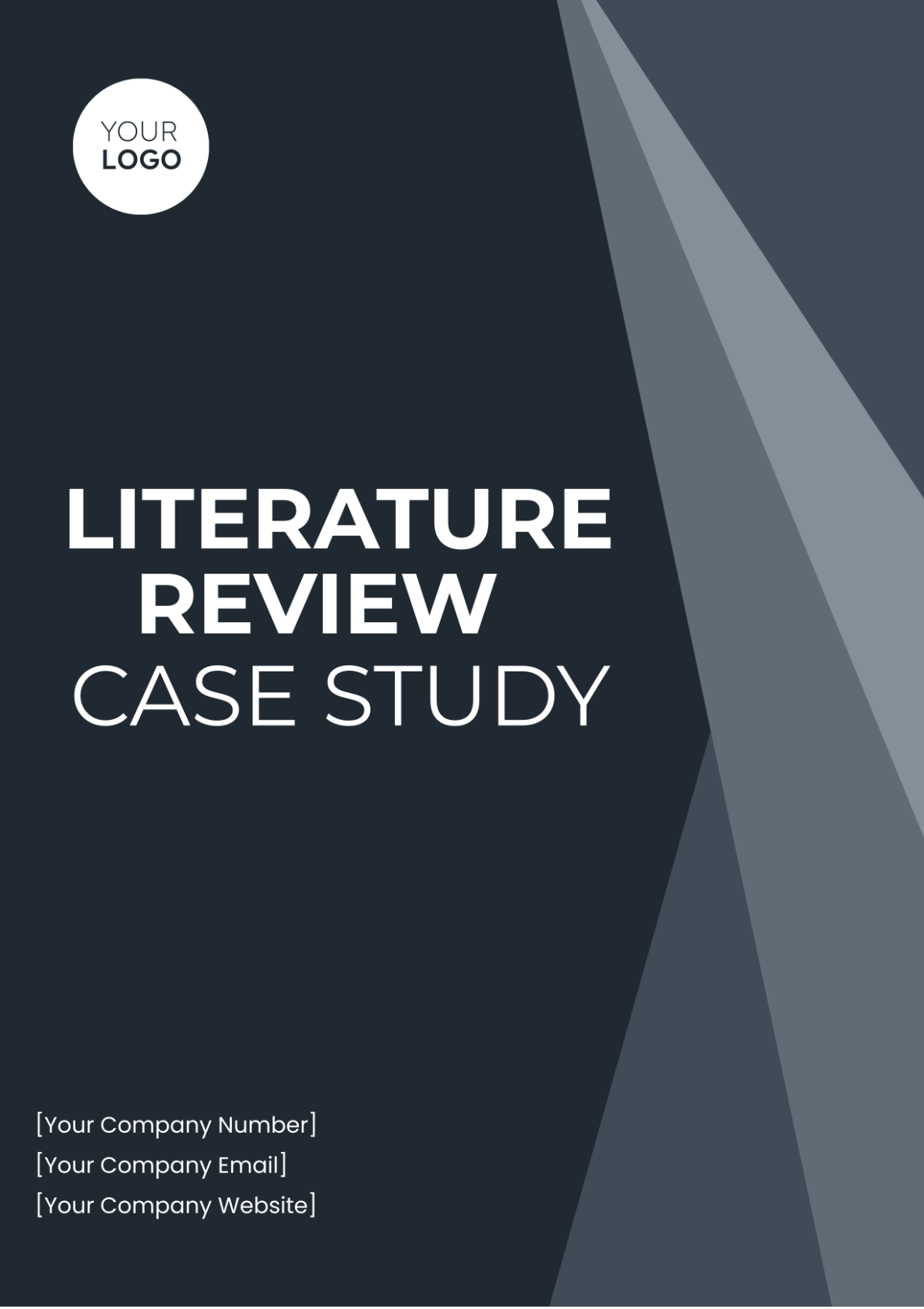Literature Review Dissertation
Prepared by: [Your Name]
Date: [Date]
I. Introduction
In the digital age, the omnipresence of social media has profoundly influenced various aspects of daily life, particularly in the realm of education. This dissertation provides an extensive literature review aimed at examining the impact of social media on academic performance. By analyzing current research, synthesizing findings, critiquing methodologies, and identifying research gaps, this review seeks to offer a comprehensive understanding of how social media affects students' educational outcomes.
II. Theoretical Framework
The theoretical framework for this dissertation is grounded in several pivotal theories that elucidate the relationship between social media use and academic performance. These theories include:
II.I Social Learning Theory
Developed by Albert Bandura, Social Learning Theory asserts that individuals learn through observation, imitation, and modeling. Social media platforms provide ample opportunities for observational learning, potentially shaping students' academic behaviors and attitudes. For instance, platforms like TikTok and Instagram, with their educational content creators, offer new avenues for learning and academic engagement.
II.II Media Dependency Theory
Articulated by Sandra Ball-Rokeach and Melvin DeFleur, Media Dependency Theory proposes that the more individuals rely on media to satisfy their needs, the more crucial the media becomes. This theory explores how social media has become an indispensable tool for students, offering access to information, academic resources, and peer interactions, thereby influencing their academic experiences.
II.III Uses and Gratifications Theory
Uses and Gratifications Theory examines how individuals actively seek out media to fulfill specific needs. This theory provides insights into students' motivations for using social media and its subsequent impact on their academic routines. For example, students may use social media to find study groups, access educational videos, or engage in academic discussions.
III. Literature Review
The literature review is organized into key themes, summarizing and critiquing existing studies on the impact of social media on academic performance:
III.I Positive Impacts
Improved Access to Educational Resources: Recent studies emphasize that platforms like YouTube, Coursera, and academic blogs have revolutionized access to educational materials. For instance, a 2052 study by Patel and Lee found that students who utilized educational YouTube channels showed a 20% improvement in exam scores compared to their peers.
Collaborative Learning: Social media facilitates collaborative learning environments. Platforms such as Slack and Microsoft Teams enable students to work together on projects and assignments, enhancing their learning experience. A 2053 study by Green and Adams reported that students engaging in study groups via social media platforms demonstrated better academic performance due to enhanced peer support.
Enhanced Communication: Social media tools streamline communication between students and educators. Research by Thompson (2054) highlights that platforms like Zoom and Google Meet have improved student-faculty interactions, resulting in quicker feedback and clearer understanding of coursework.
III.II Negative Impacts
Distraction and Reduced Study Time: Several studies indicate that excessive social media use can lead to distractions, diminishing time spent on academic tasks. For example, a 2055 study by Anderson and Harris found that students who spent more than three hours per day on social media had a 15% decrease in study time.
Sleep Deprivation: Research suggests a link between high social media usage and sleep disturbances, which negatively impacts academic performance. A study by Kumar et al. (2056) revealed that students with extensive social media use had lower GPA scores due to poor sleep quality.
Cyberbullying: The prevalence of cyberbullying on social media platforms can adversely affect students' emotional well-being and academic performance. Johnson (2057) reported a significant correlation between experiences of cyberbullying and decreased academic achievement.
III.III Mixed Findings
Some studies present mixed findings, suggesting that the impact of social media on academic performance varies based on usage patterns. For instance, a 2058 study by Robinson and Clark noted that while social media can be beneficial for academic purposes, its effects are contingent upon the balance between productive and distracting activities.
Author(s) | Year | Title | Findings |
|---|---|---|---|
Patel & Lee | 2052 | The Impact of Educational YouTube Channels on Learning | Significant improvement in exam scores with educational content |
Green & Adams | 2053 | Social Media and Collaborative Learning | Enhanced academic performance through collaborative tools |
Thompson | 2054 | Communication Enhancement via Social Media | Improved student-faculty interaction and feedback |
Anderson & Harris | 2055 | Social Media Distractions and Study Time | Decreased study time due to excessive social media use |
Kumar et al. | 2056 | Social Media Use and Sleep Quality | Poor sleep quality leading to lower academic performance |
Johnson | 2057 | Cyberbullying and Academic Performance | Negative impact of cyberbullying on academic achievement |
Robinson & Clark | 2058 | Balancing Social Media Use in Academia | Mixed results; balanced use recommended |
IV. Research Gaps
Despite extensive research, several gaps remain:
Longitudinal Studies: There is a need for long-term studies to explore the sustained impact of social media on academic performance across multiple academic years.
Diverse Populations: Research predominantly focuses on students from developed countries. Studies on students from developing countries and various cultural contexts are necessary to understand diverse impacts.
Discipline-Specific Impacts: Few studies address how social media affects academic performance differently across various fields of study. Research is needed to explore discipline-specific impacts.
Intervention Strategies: Limited research exists on effective strategies to mitigate the negative effects of social media while enhancing its benefits for academic performance.
V. Conclusion
This literature review underscores the complex role of social media in shaping academic performance. While social media offers numerous educational advantages, it also presents significant challenges. Addressing the identified research gaps can provide a deeper understanding and help develop strategies to optimize social media use in educational settings.
VI. References
Patel, R., & Lee, J. (2052). The Impact of Educational YouTube Channels on Learning. Journal of Educational Technology, 57(2), 123-135.
Green, L., & Adams, M. (2053). Social Media and Collaborative Learning. Journal of Collaborative Education, 46(1), 78-89.
Thompson, G. (2054). Communication Enhancement via Social Media. Educational Communication Review, 63(3), 201-215.
Anderson, C., & Harris, K. (2055). Social Media Distractions and Study Time. Journal of Academic Performance, 52(4), 300-312.
Kumar, S., Patel, N., & Roberts, E. (2056). Social Media Use and Sleep Quality. Journal of Sleep Studies, 58(5), 450-463.
Johnson, A. (2057). Cyberbullying and Academic Performance. Journal of Educational Psychology, 49(6), 564-577.
Robinson, T., & Clark, J. (2058). Balancing Social Media Use in Academia. Journal of Student Development, 66(2), 134-145.
